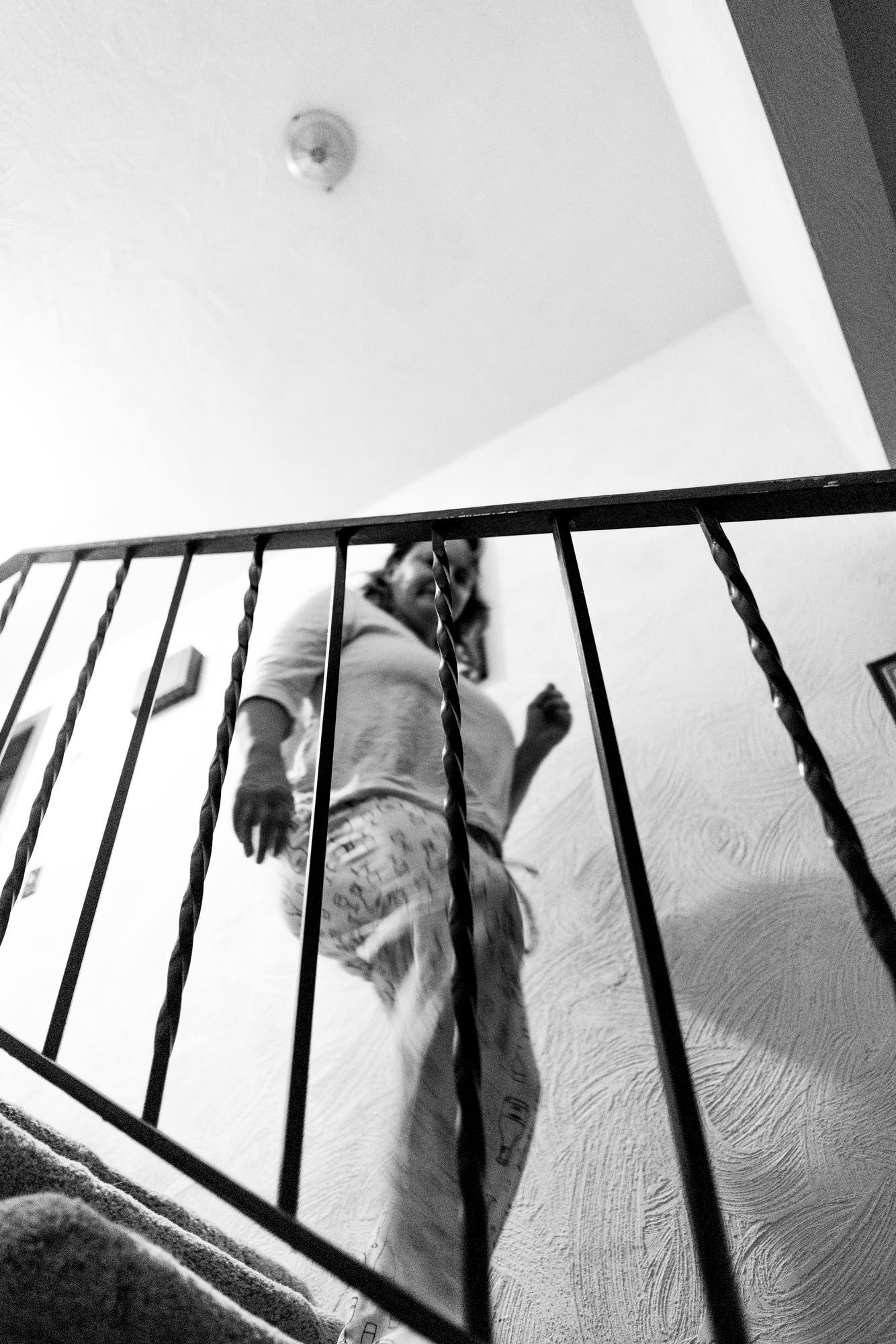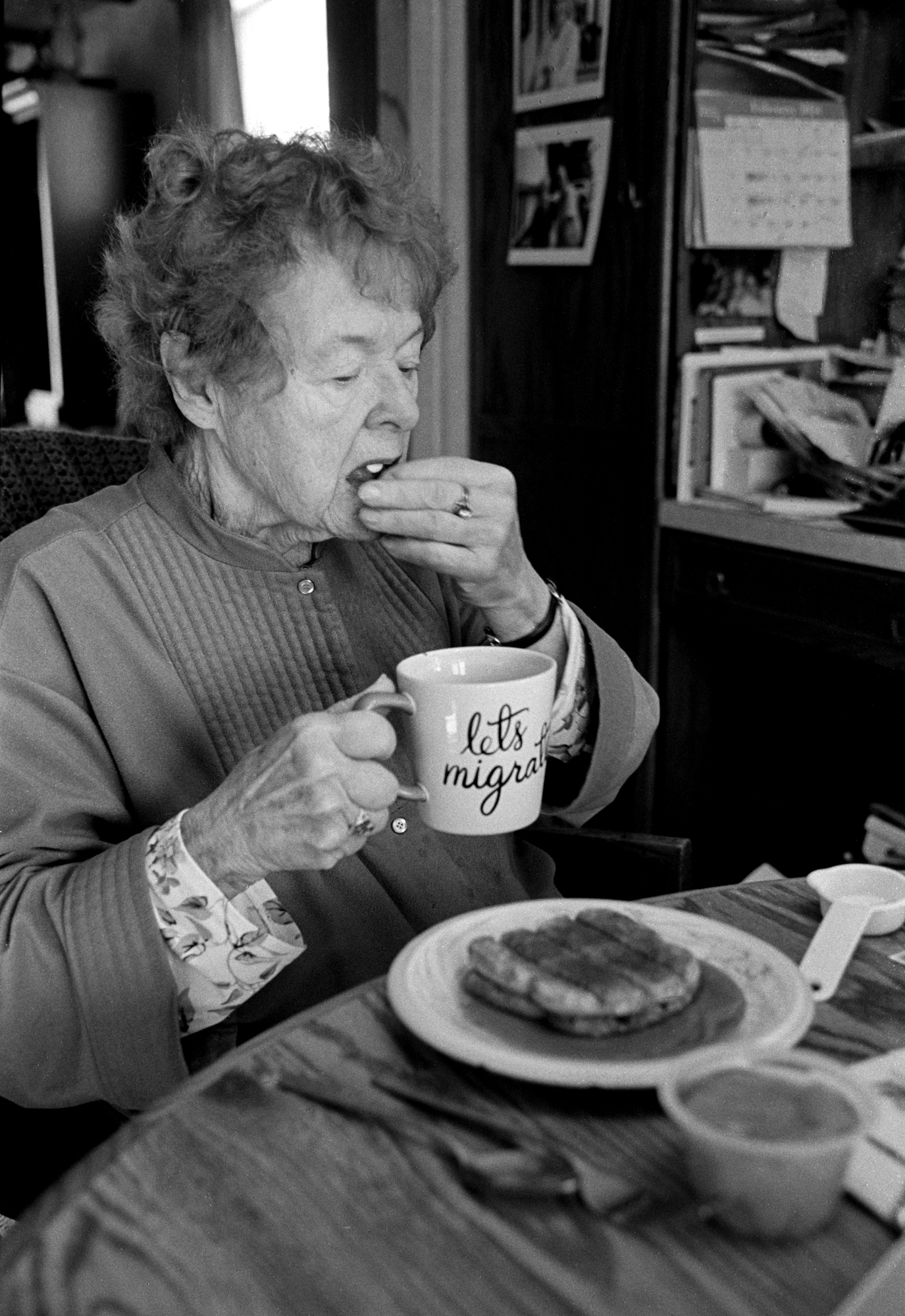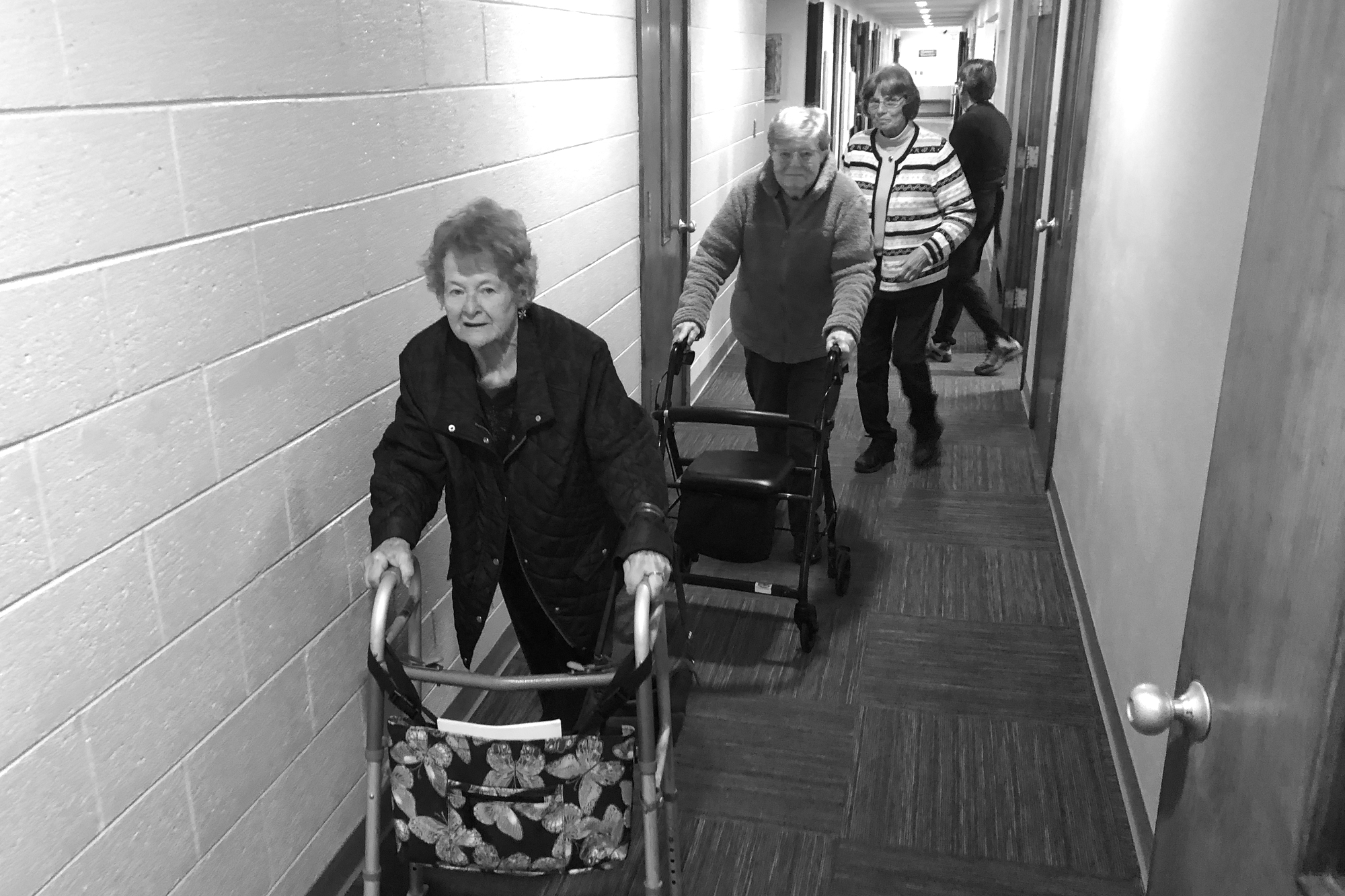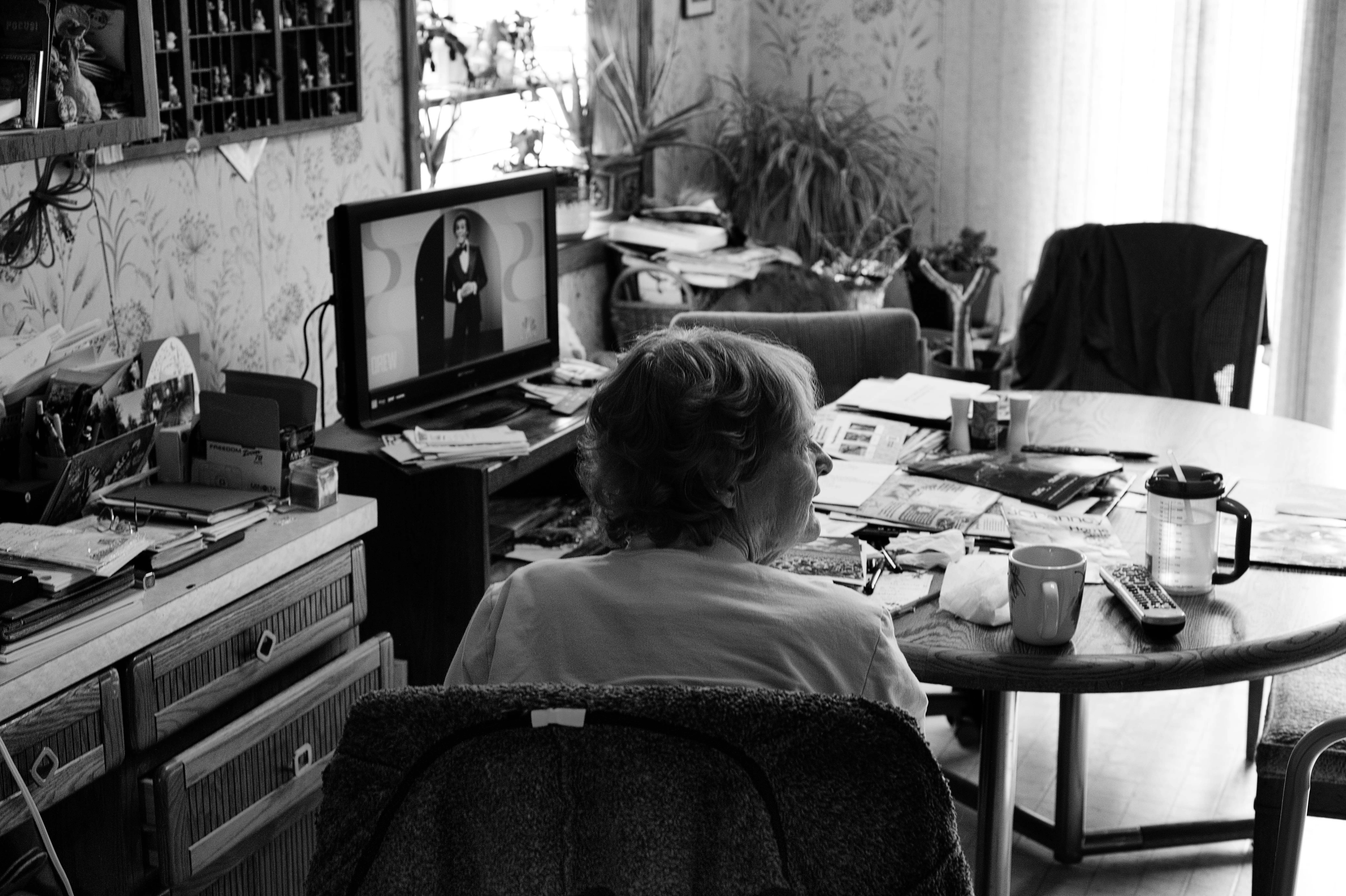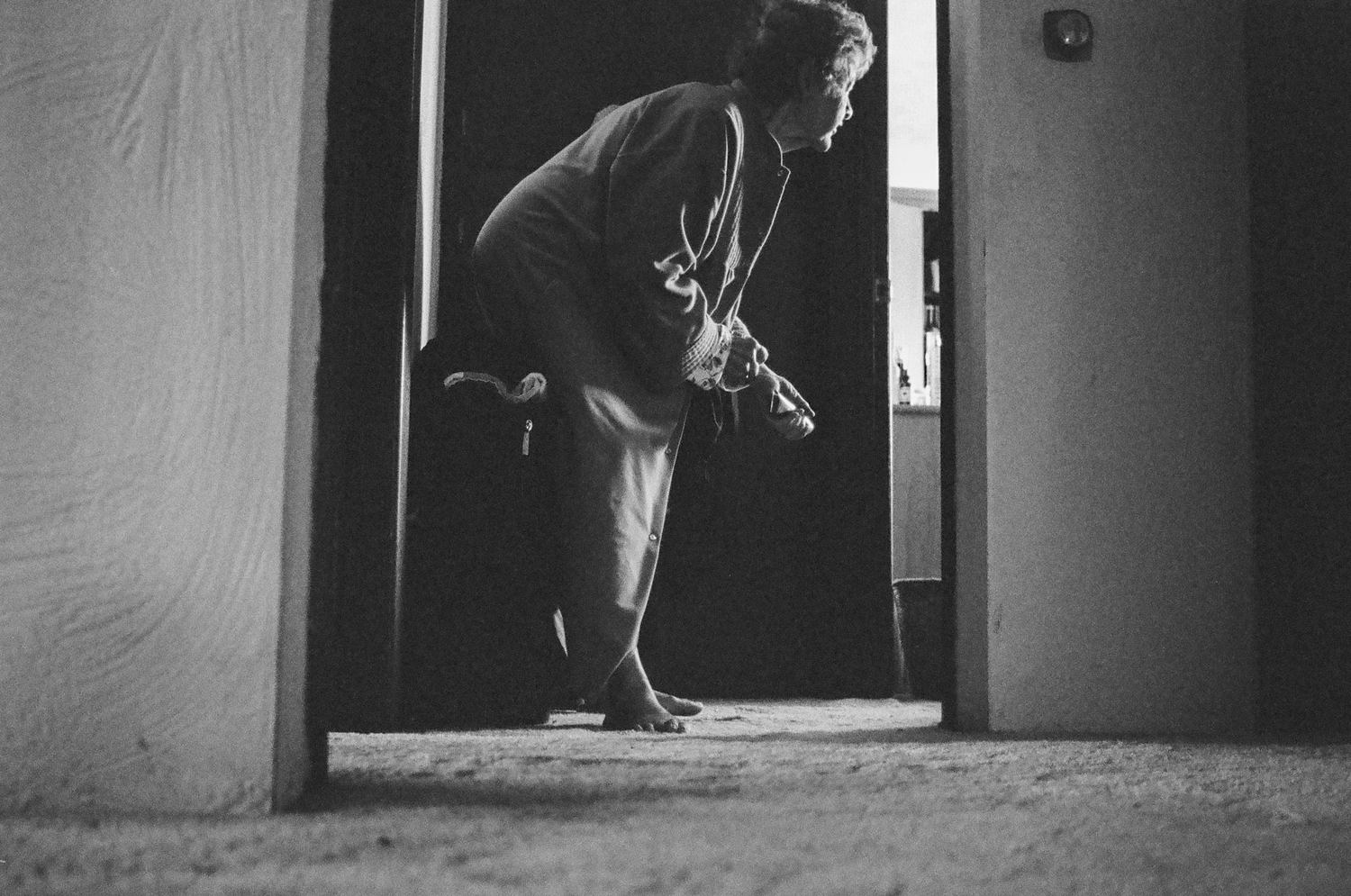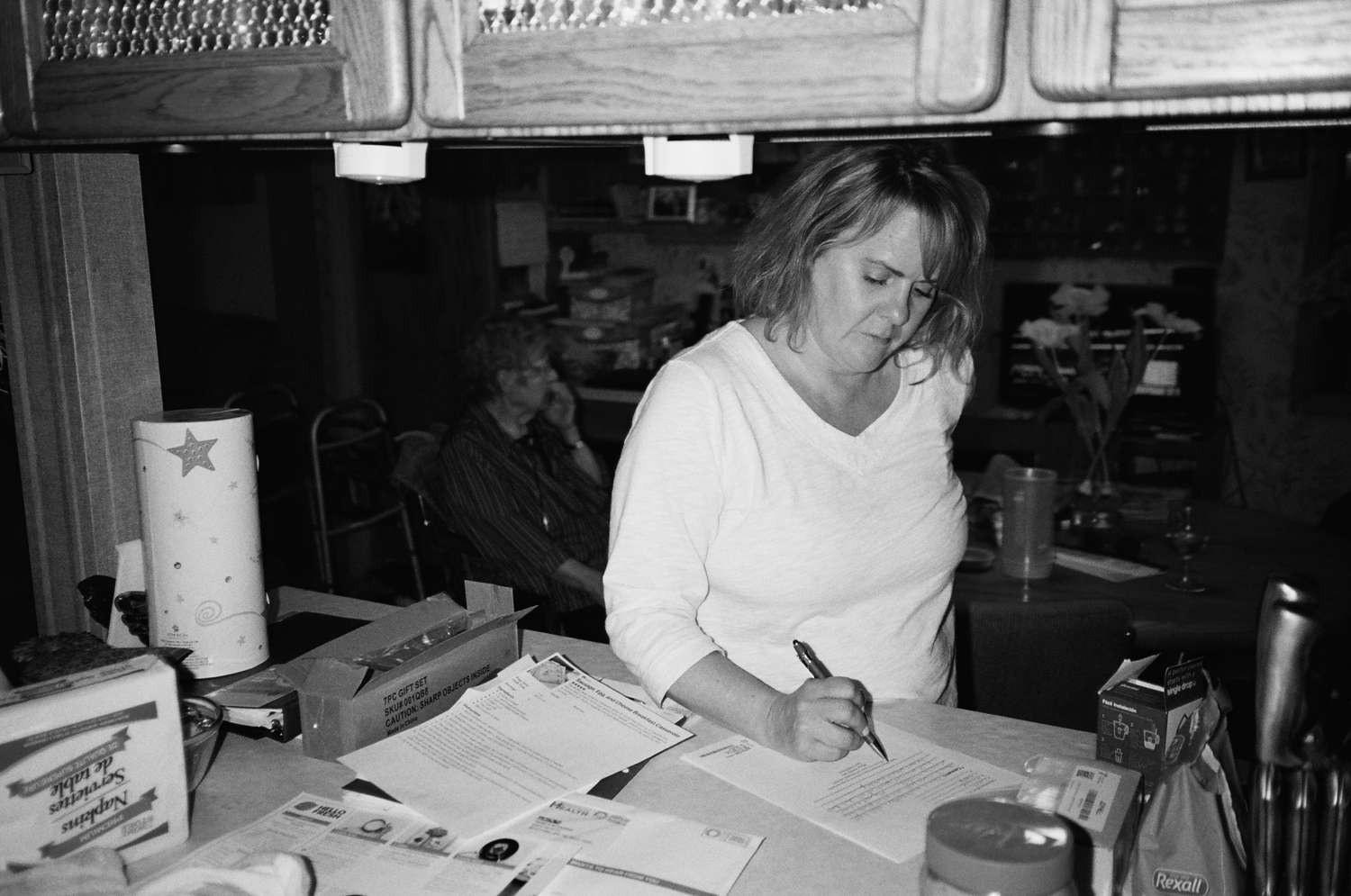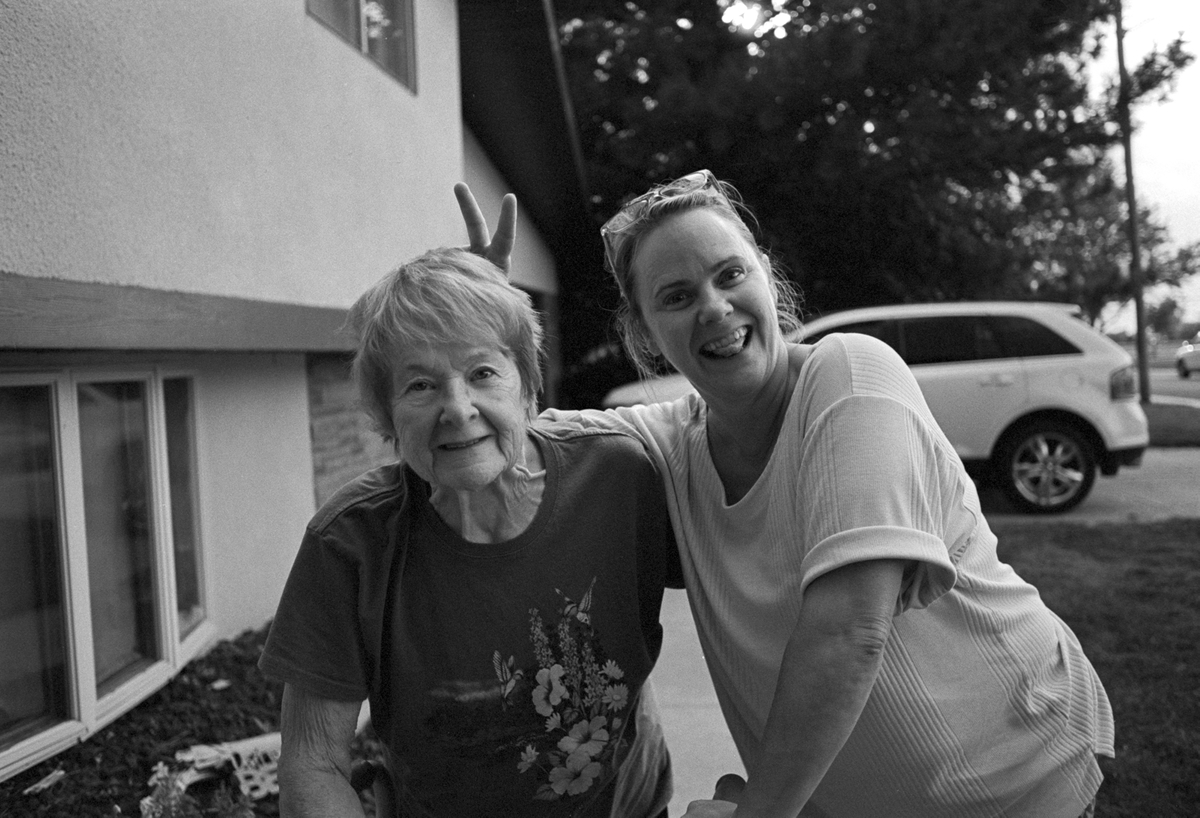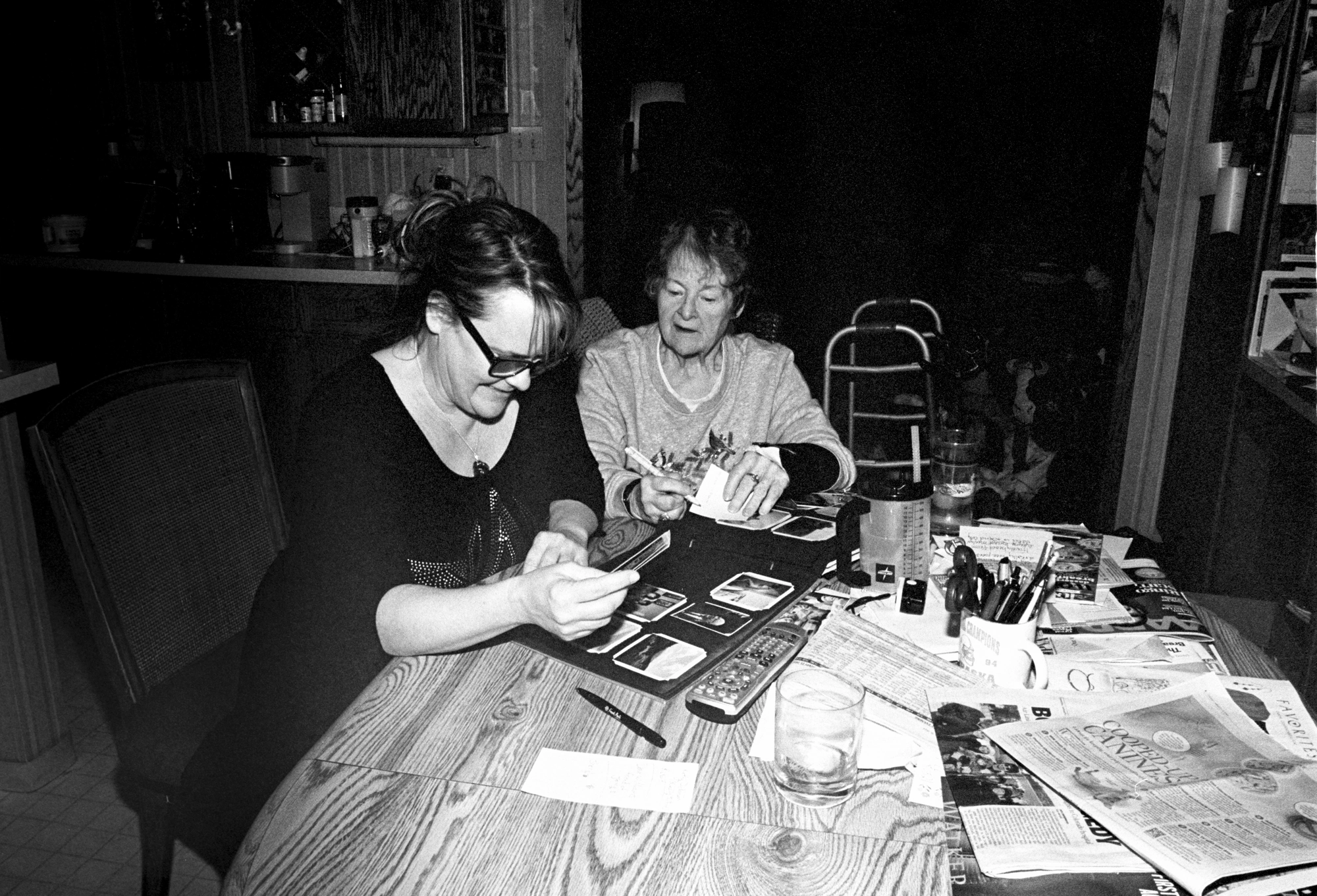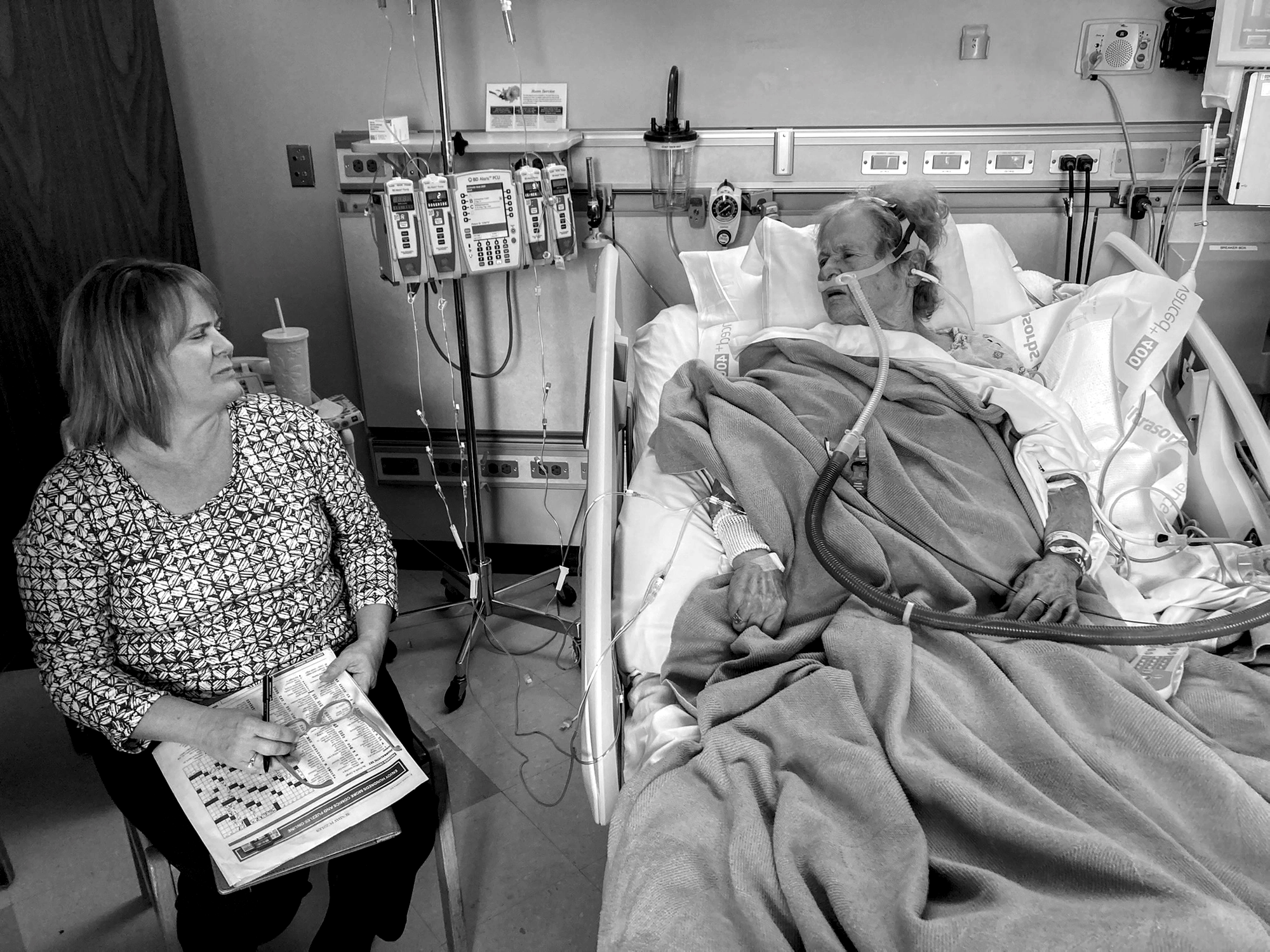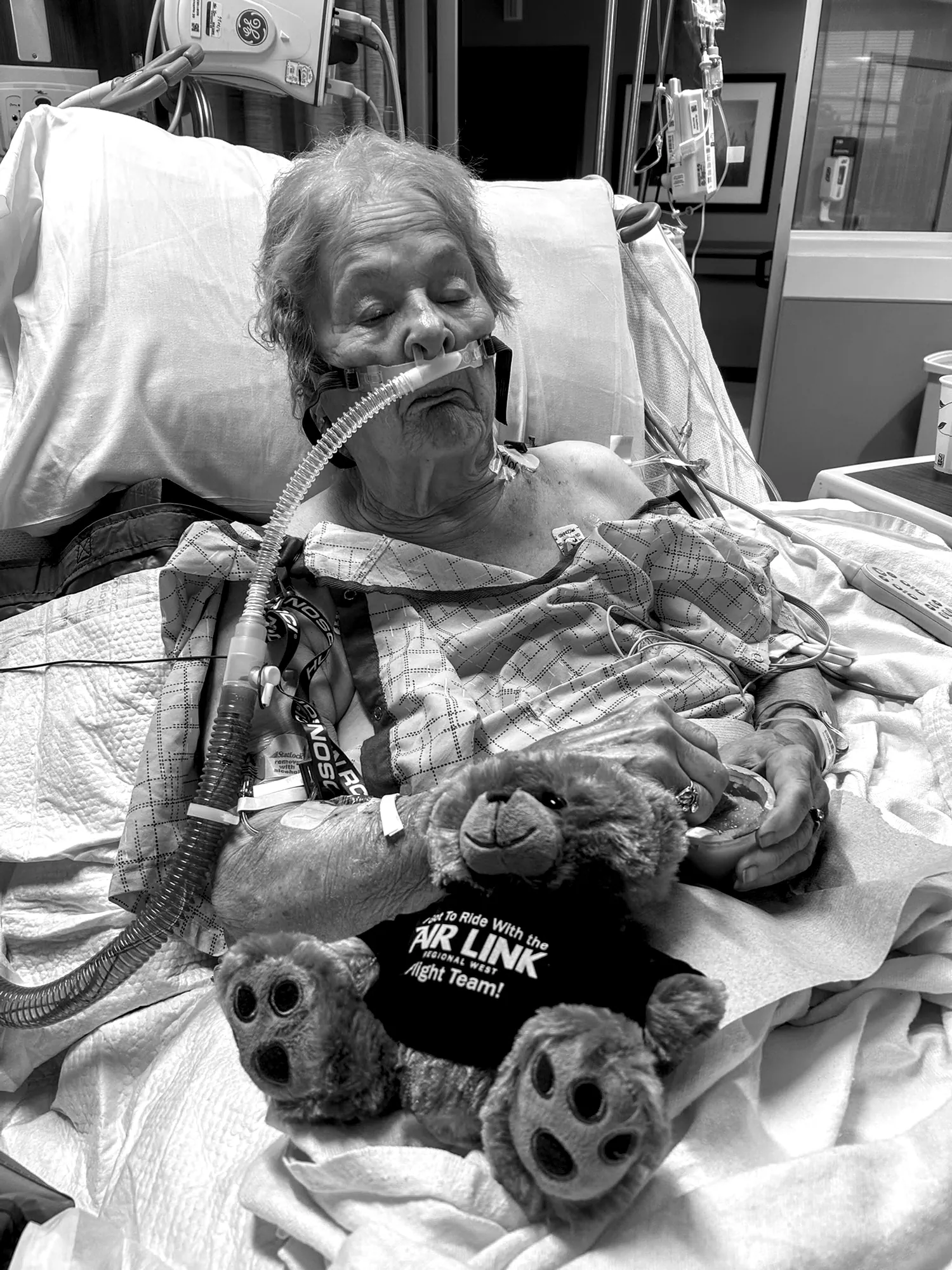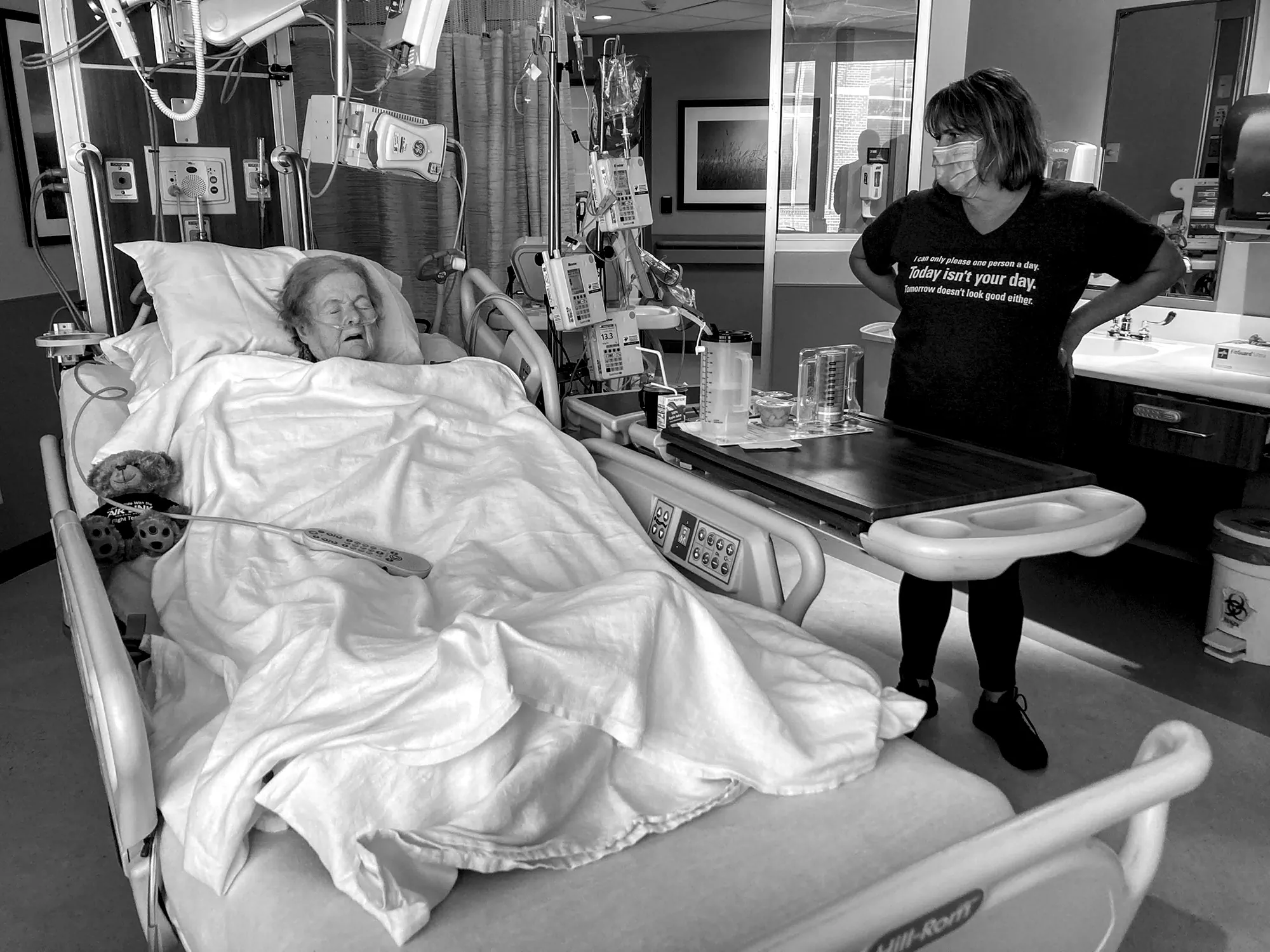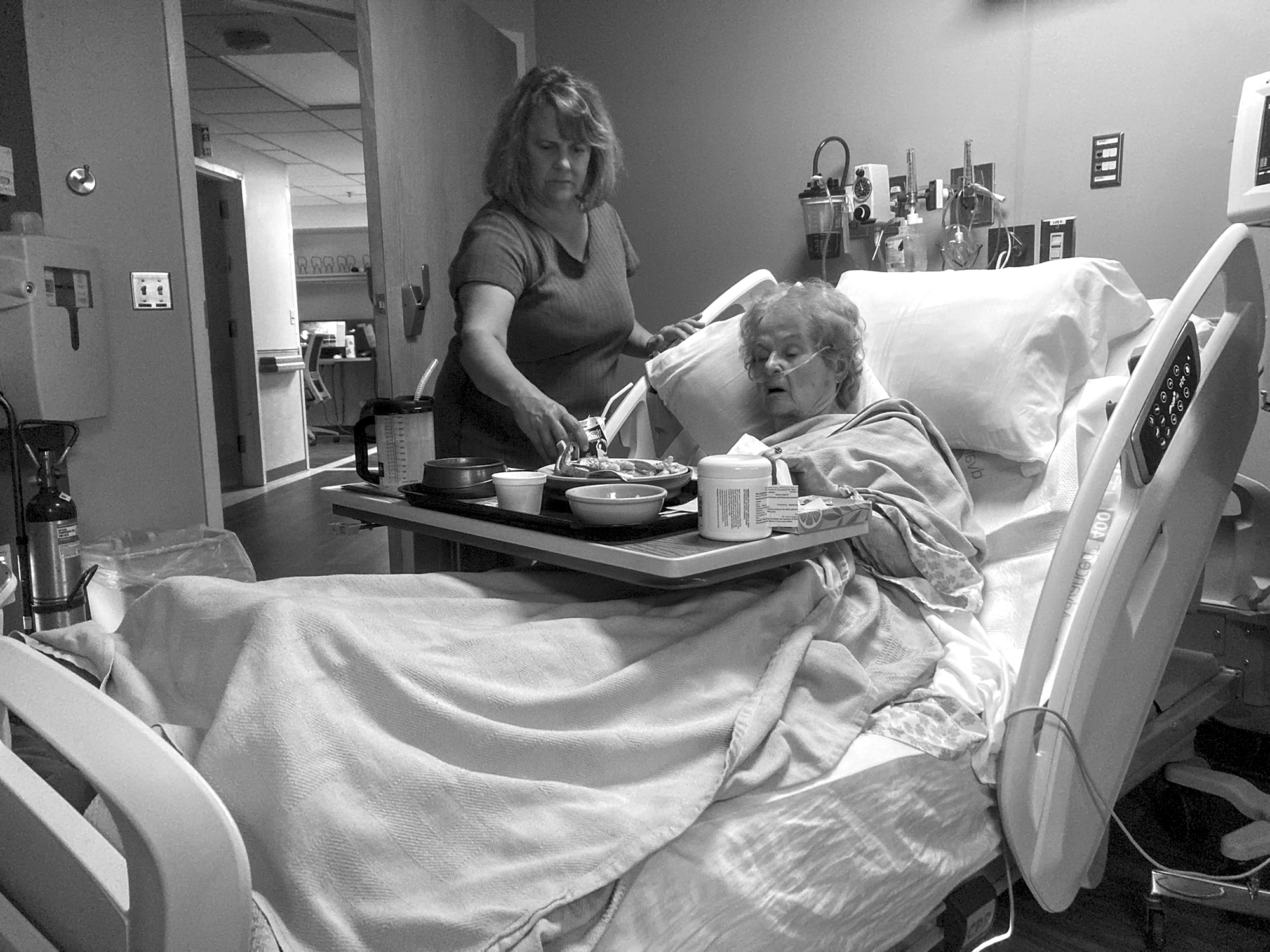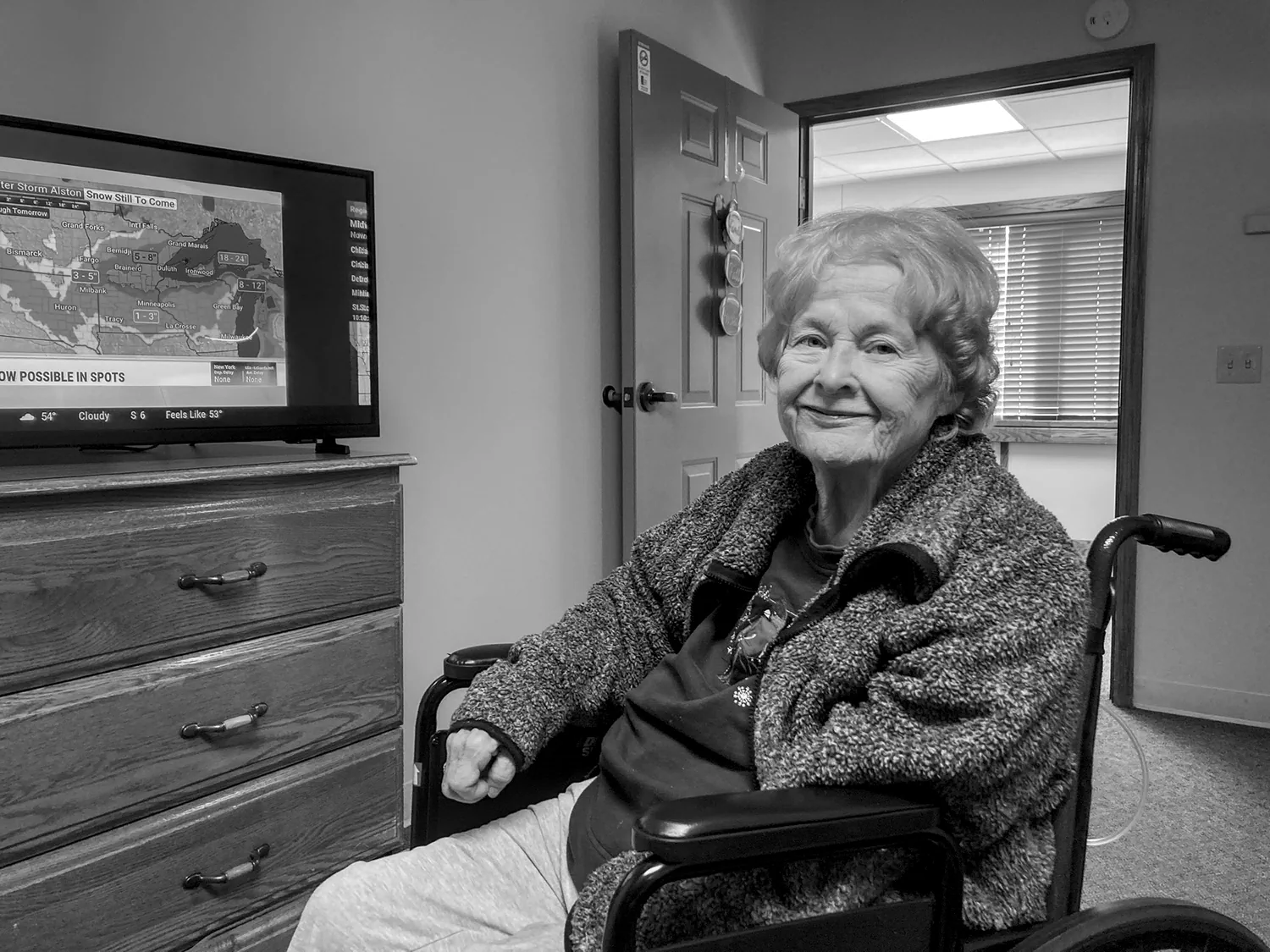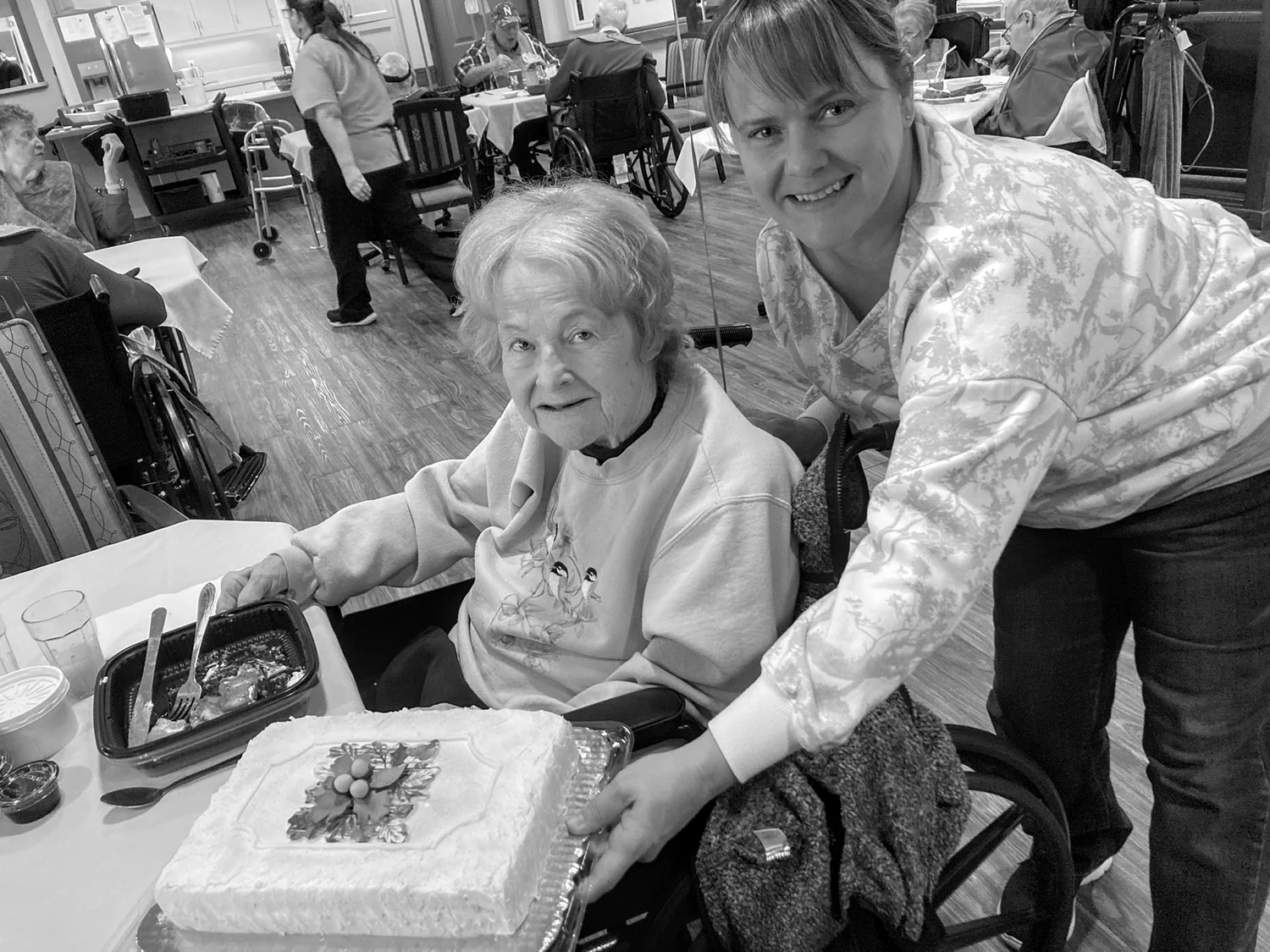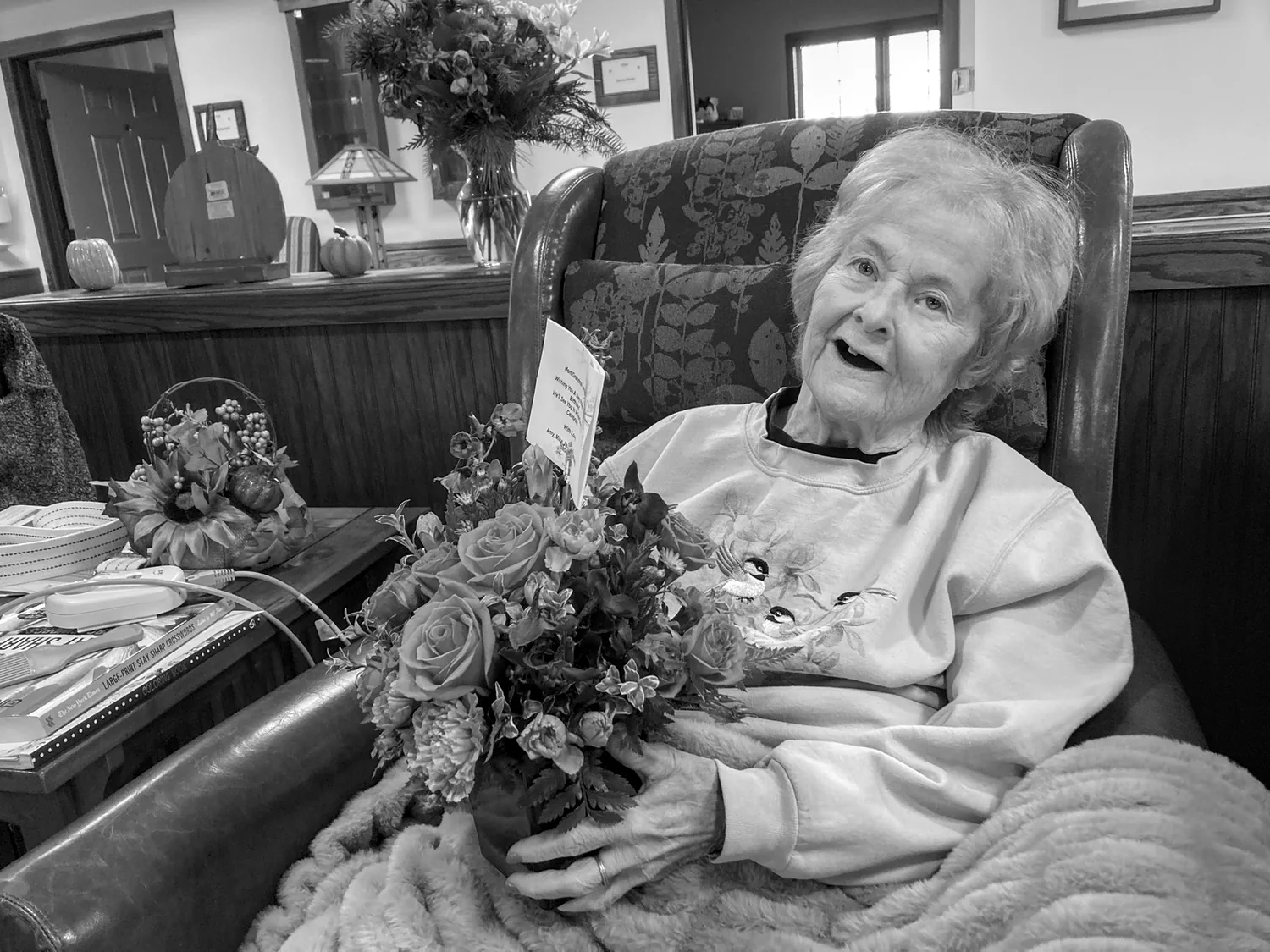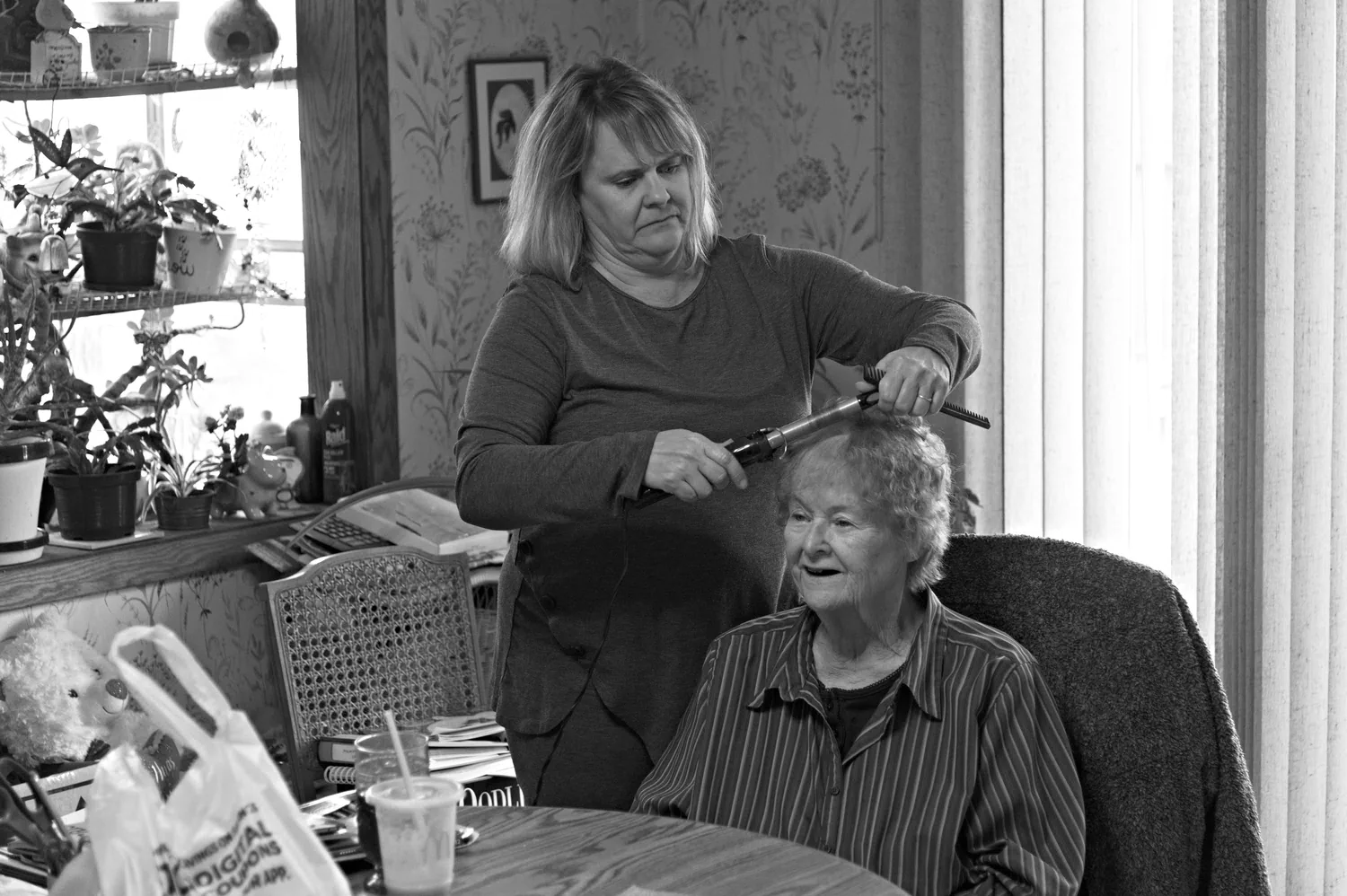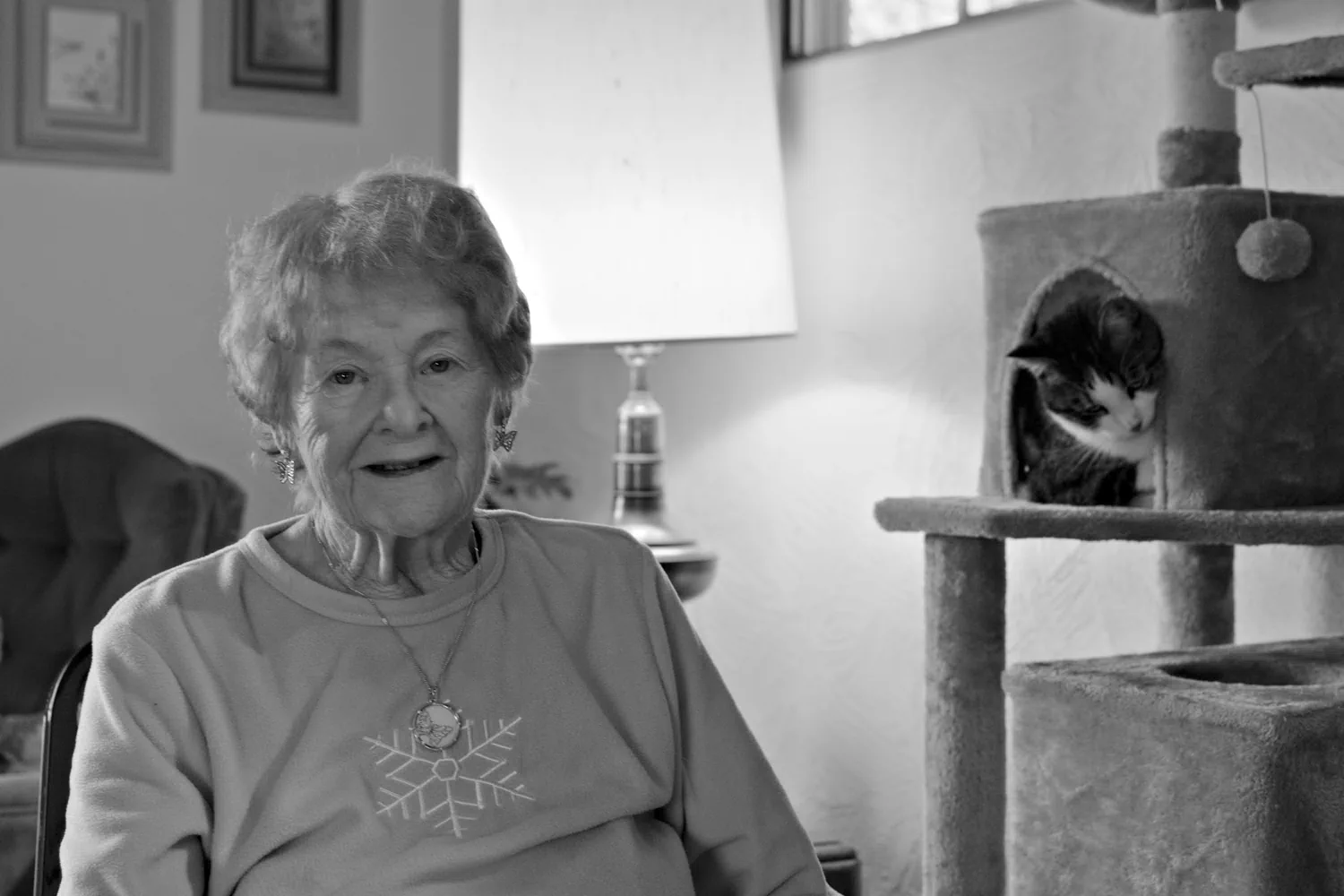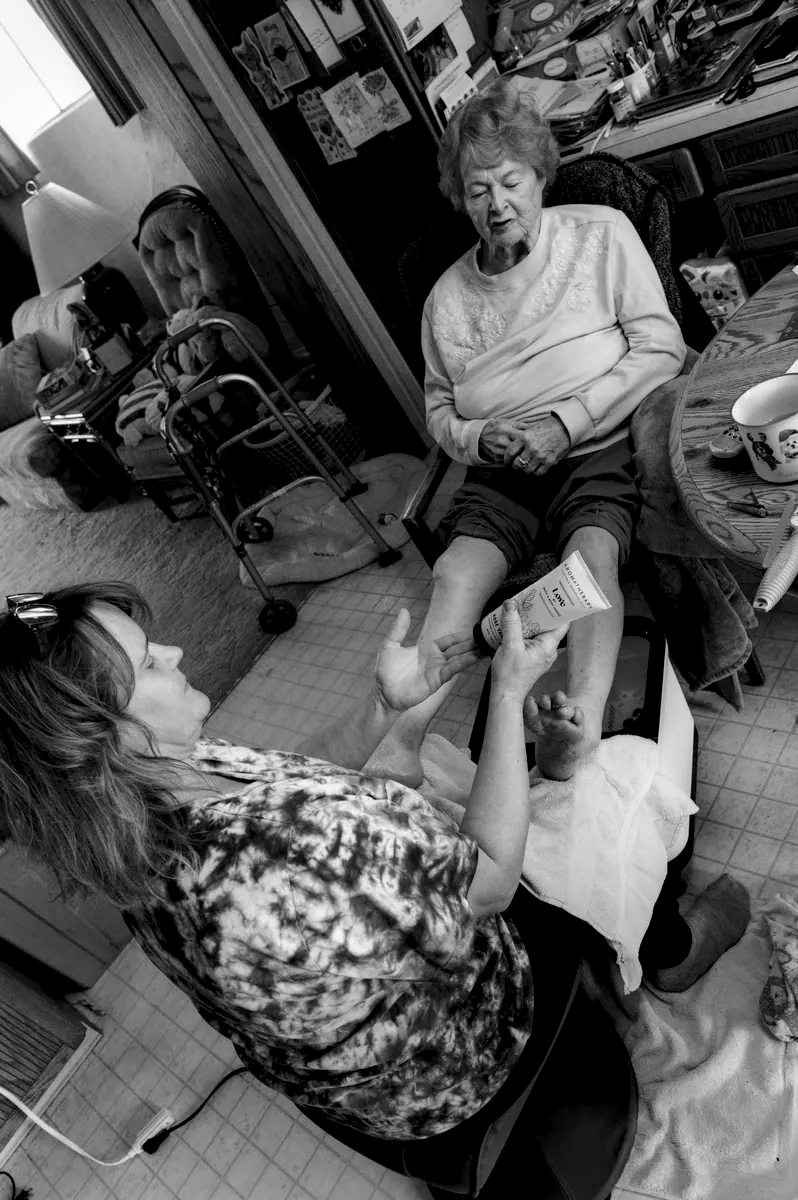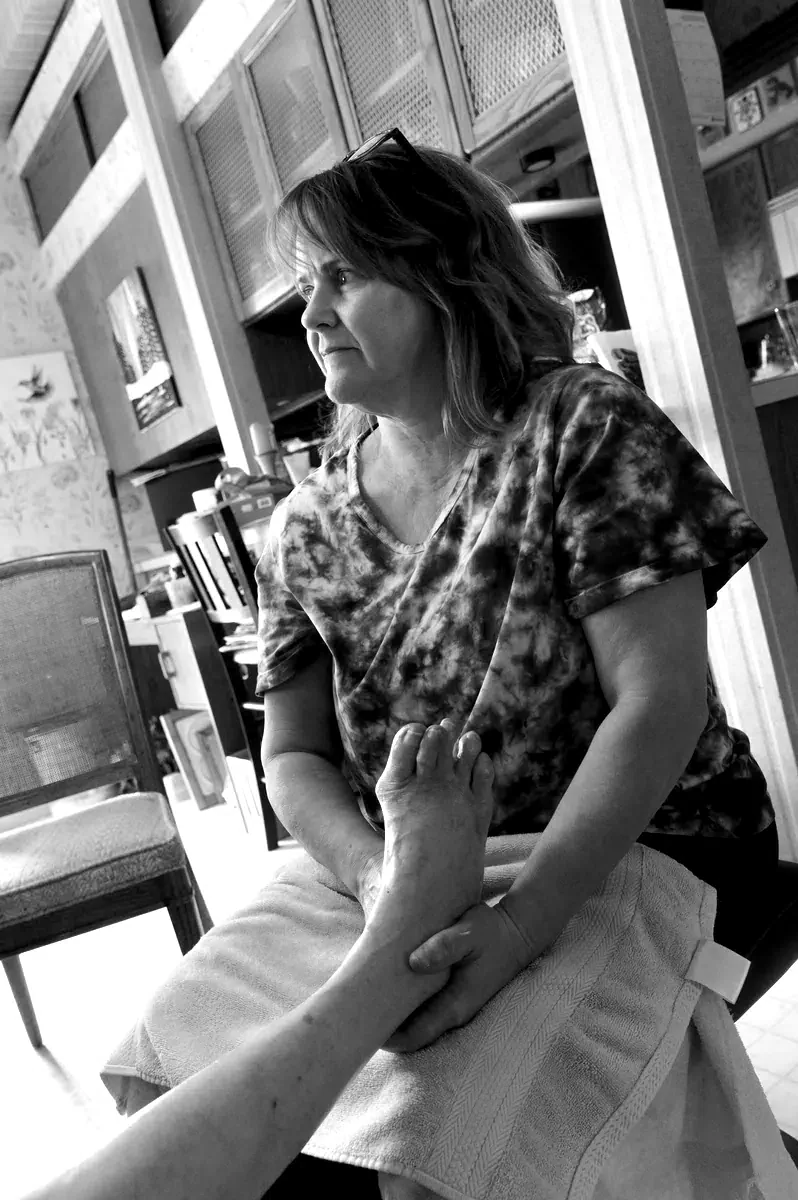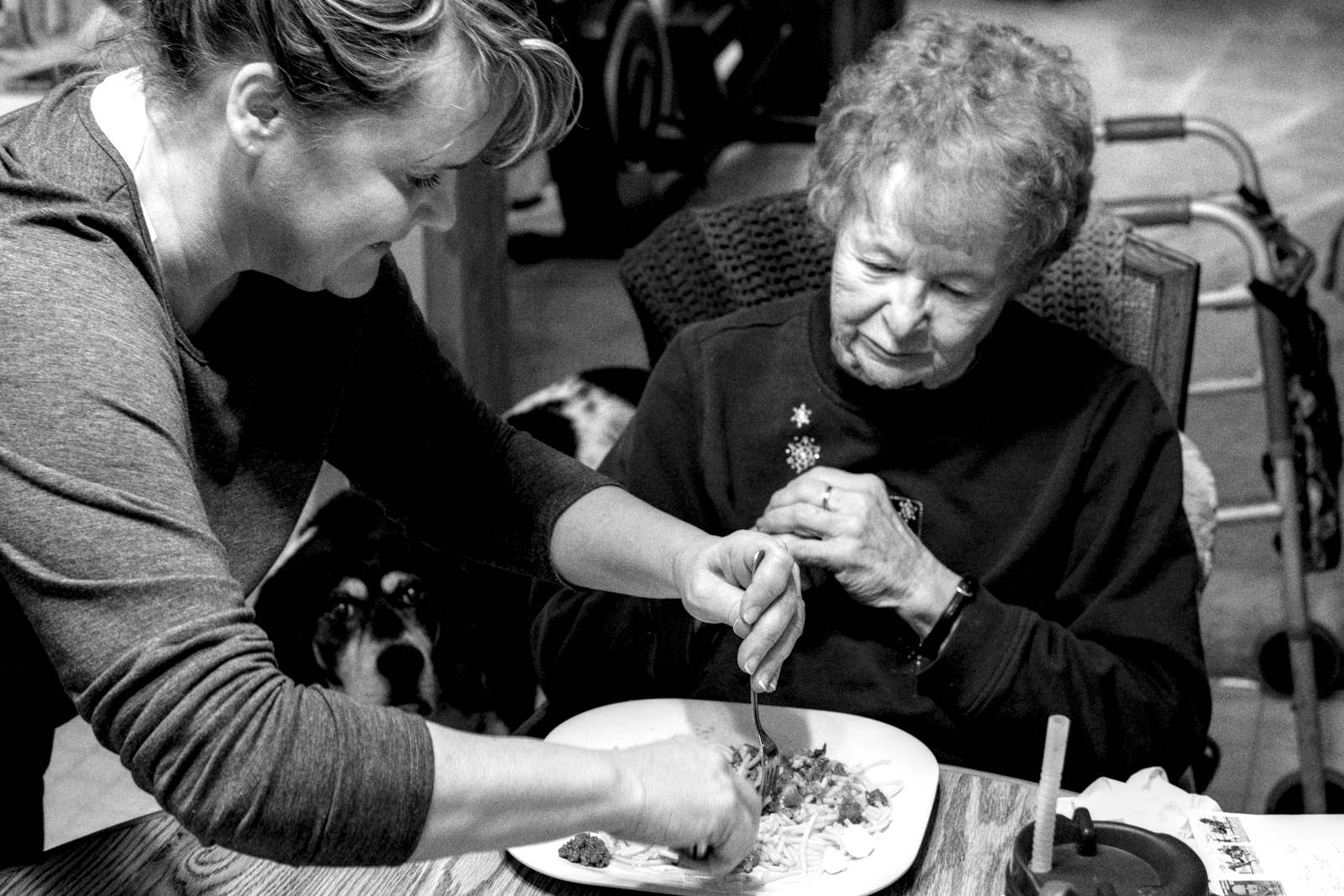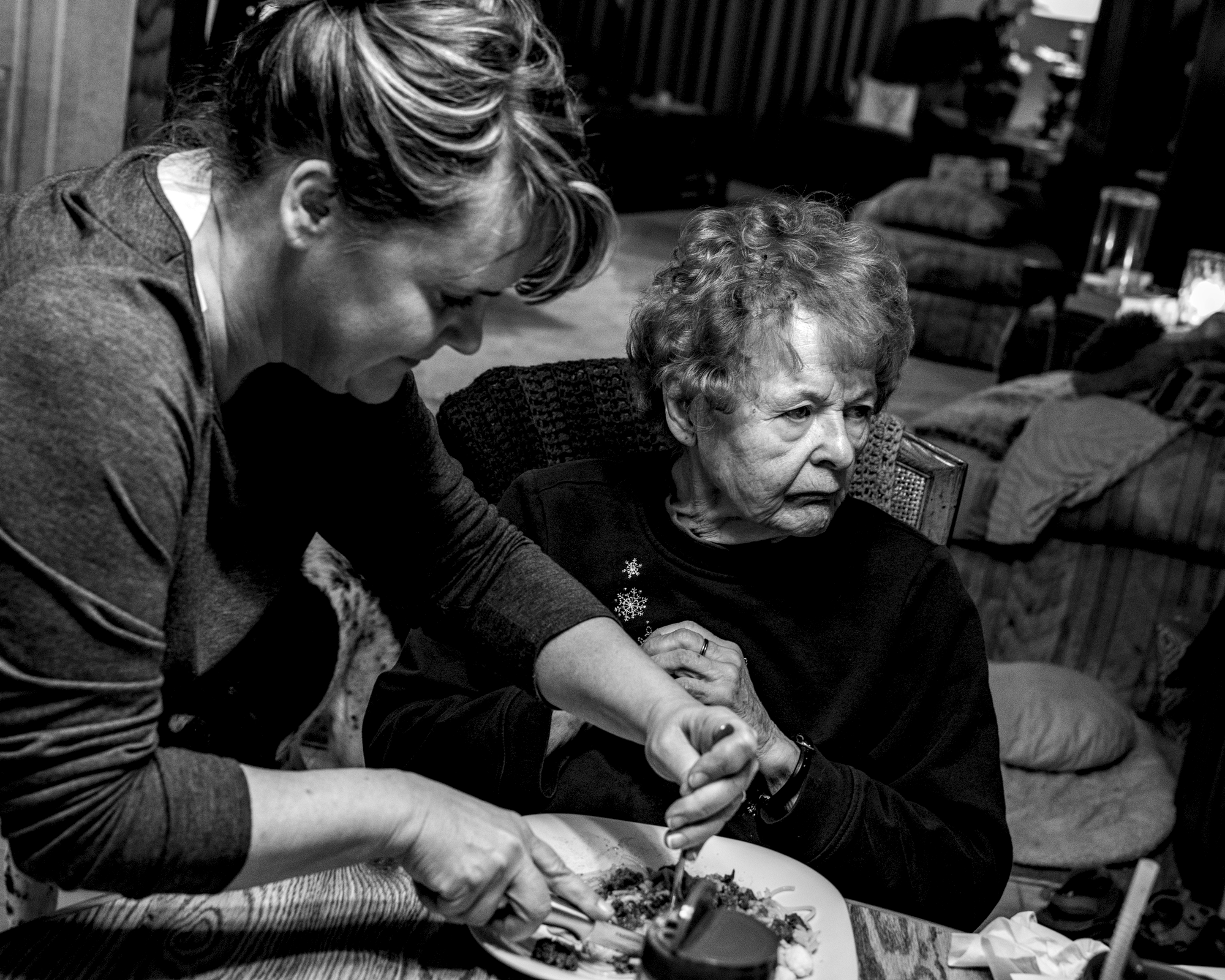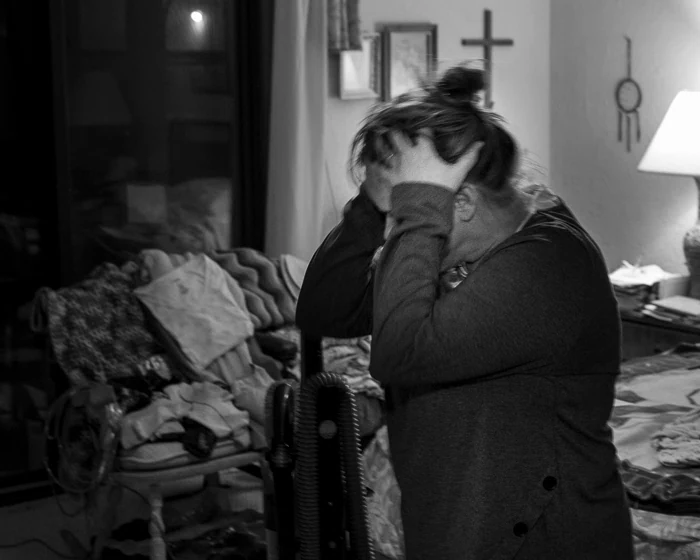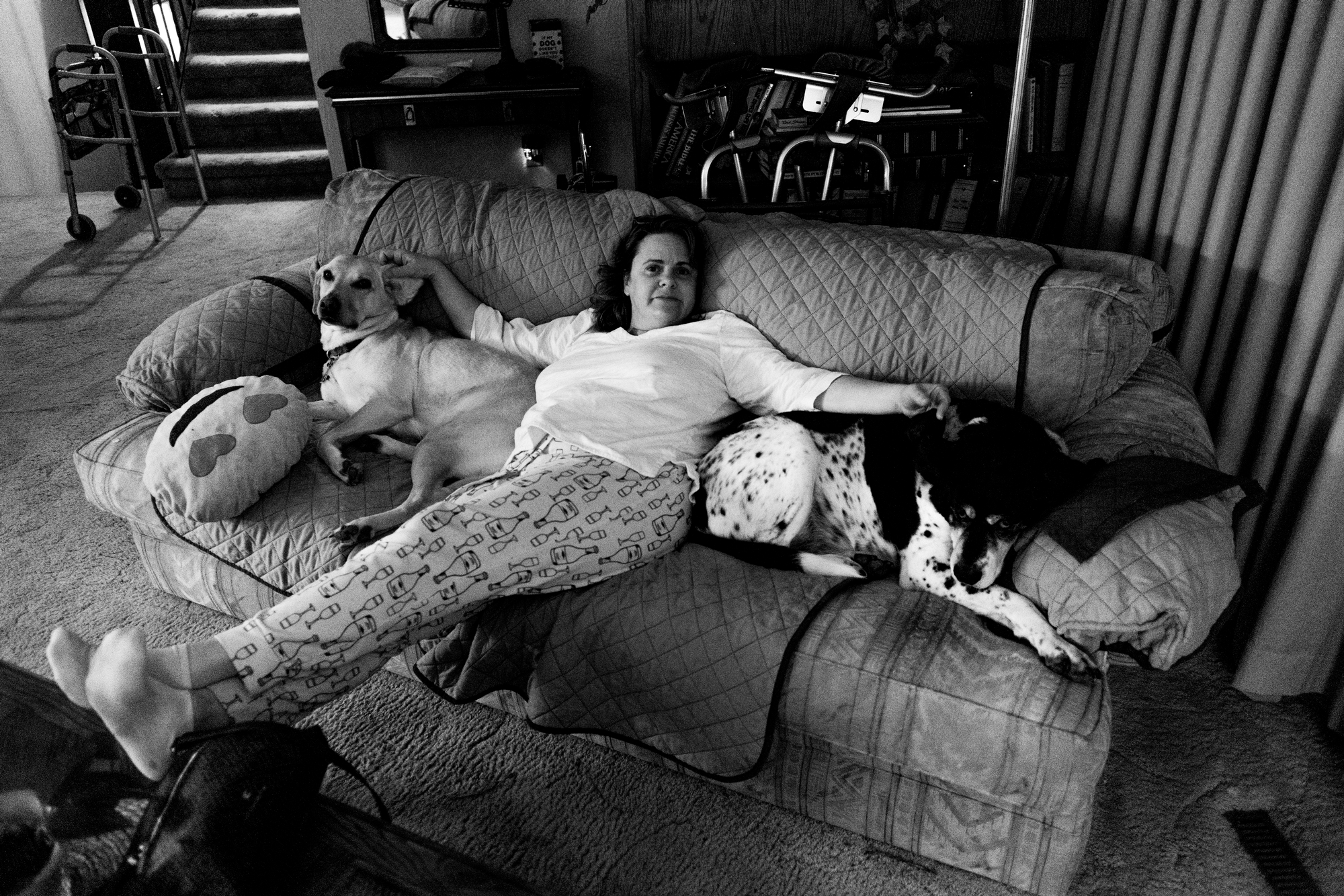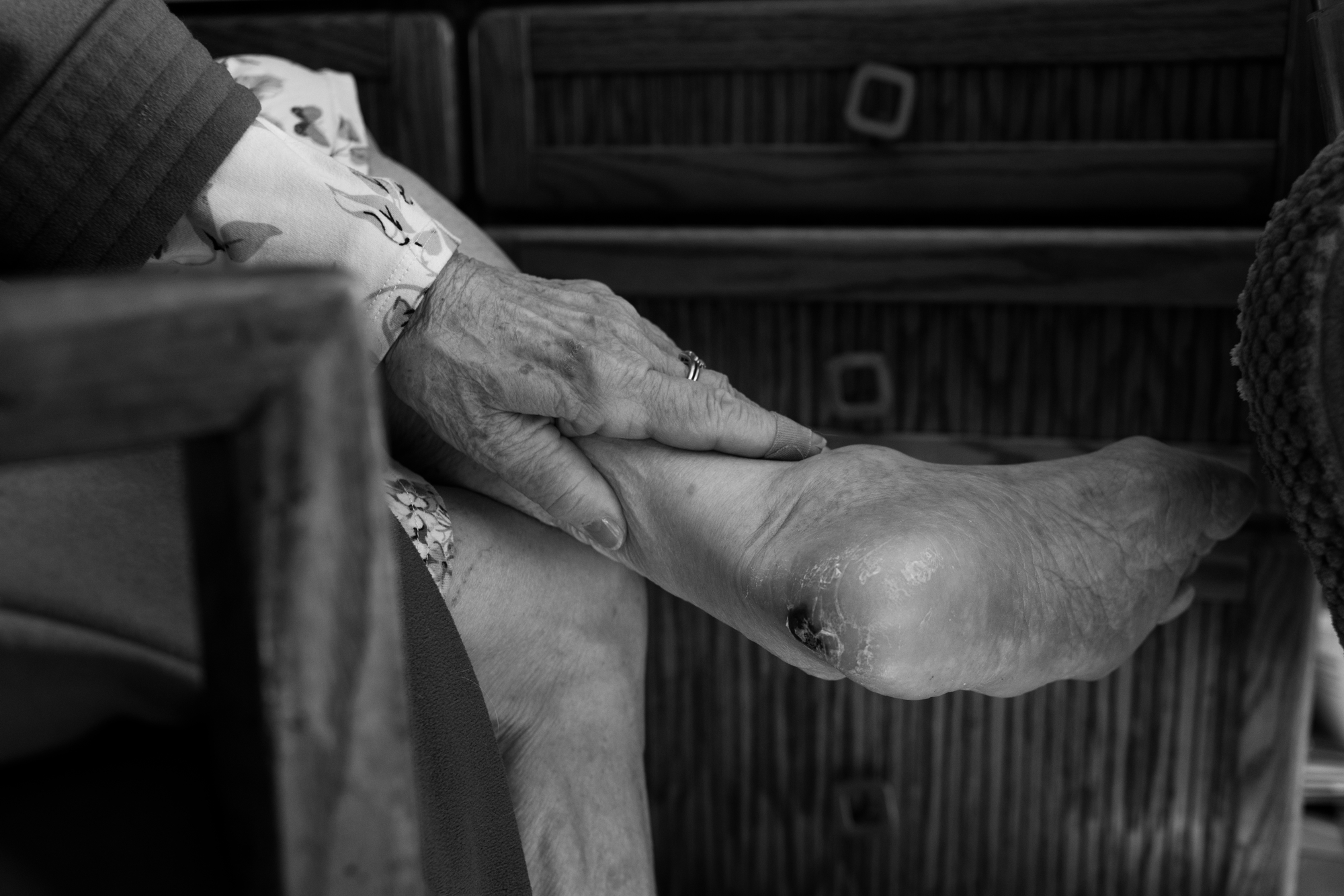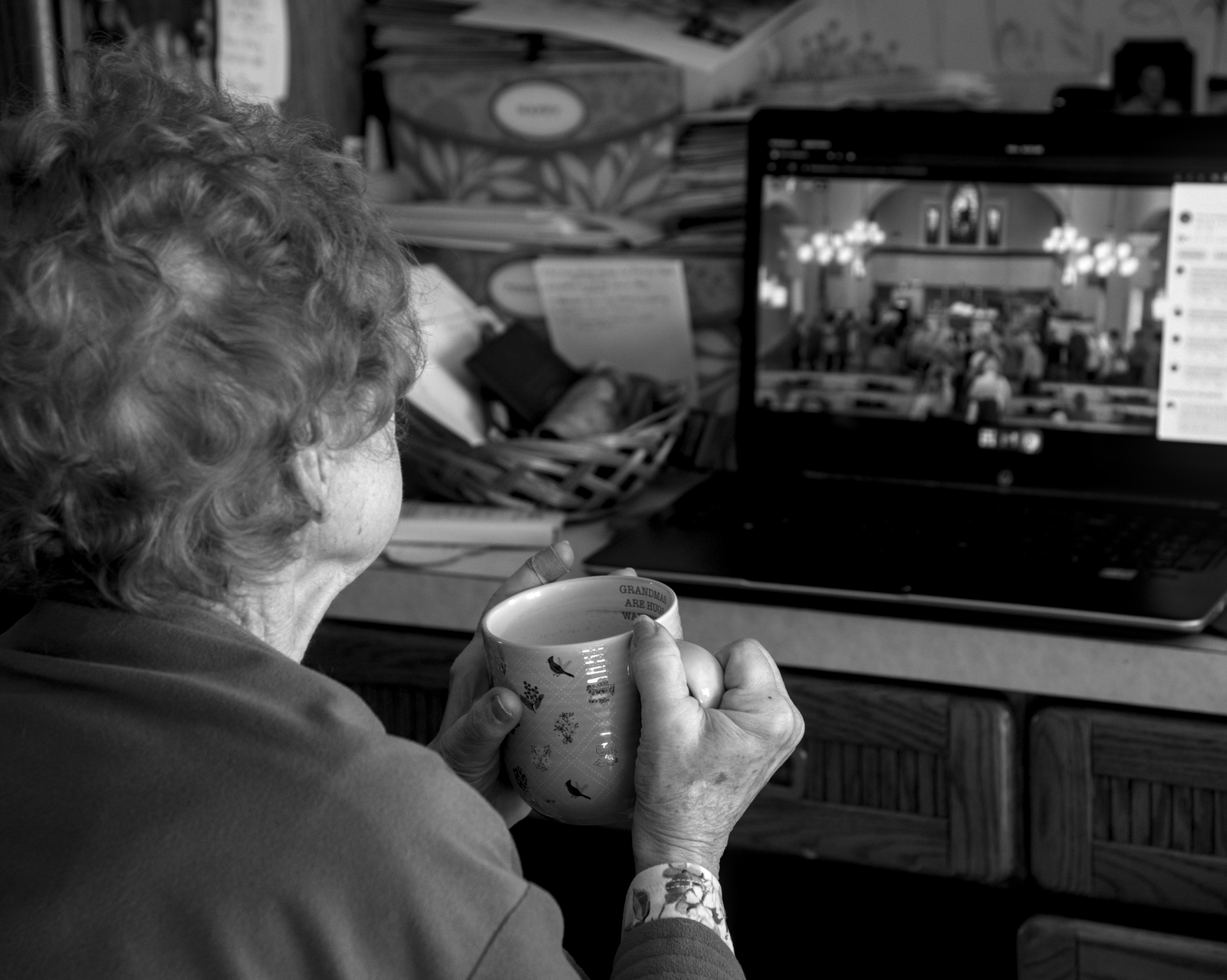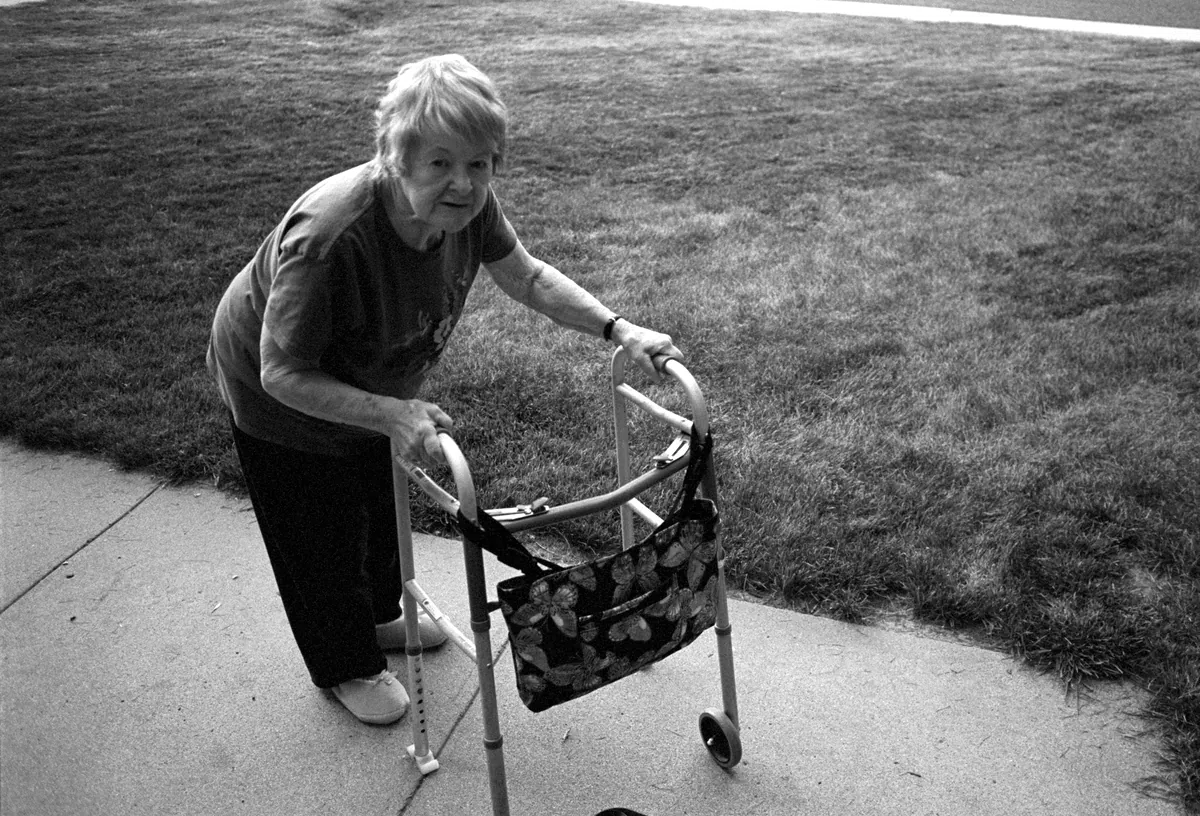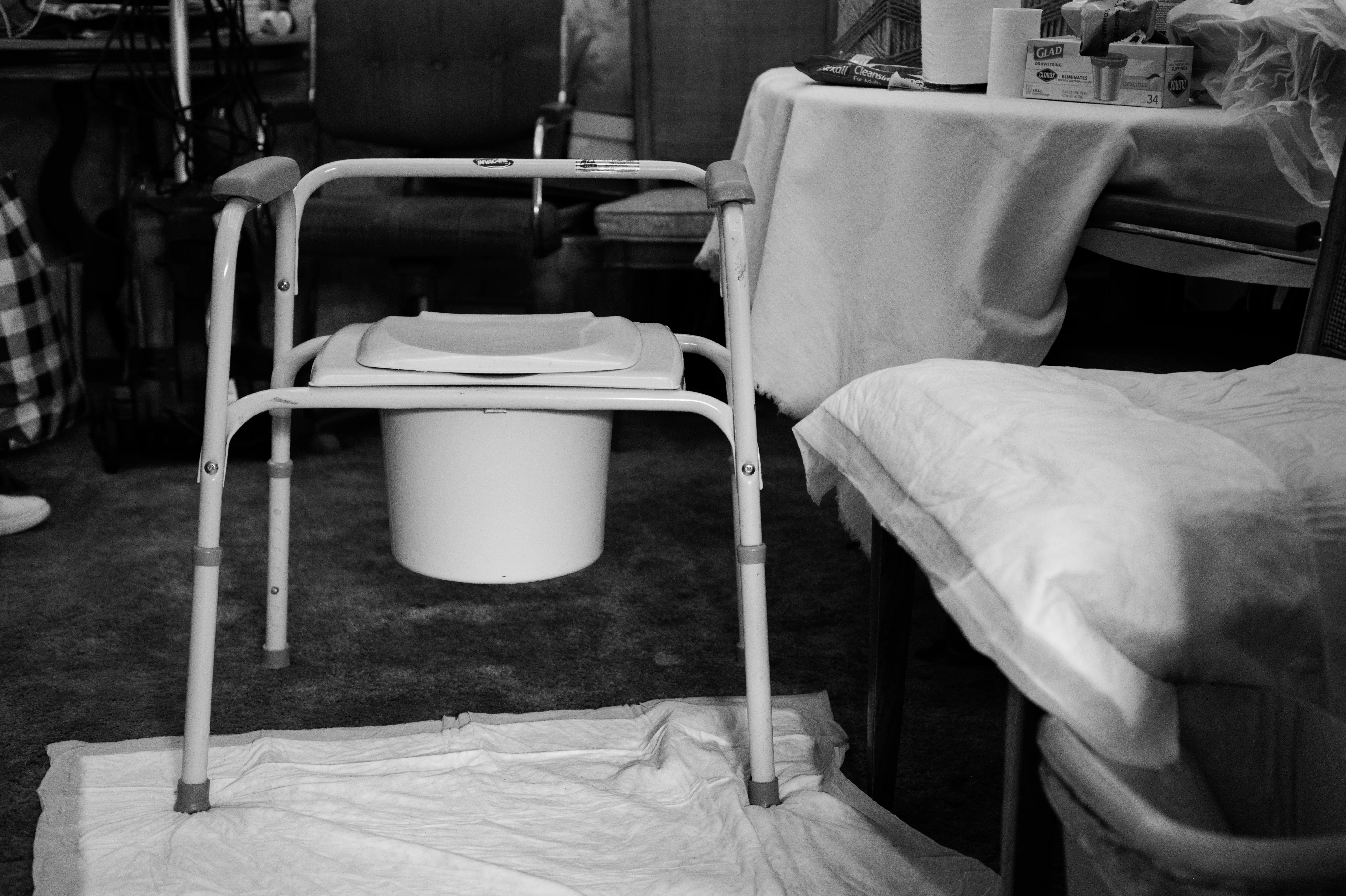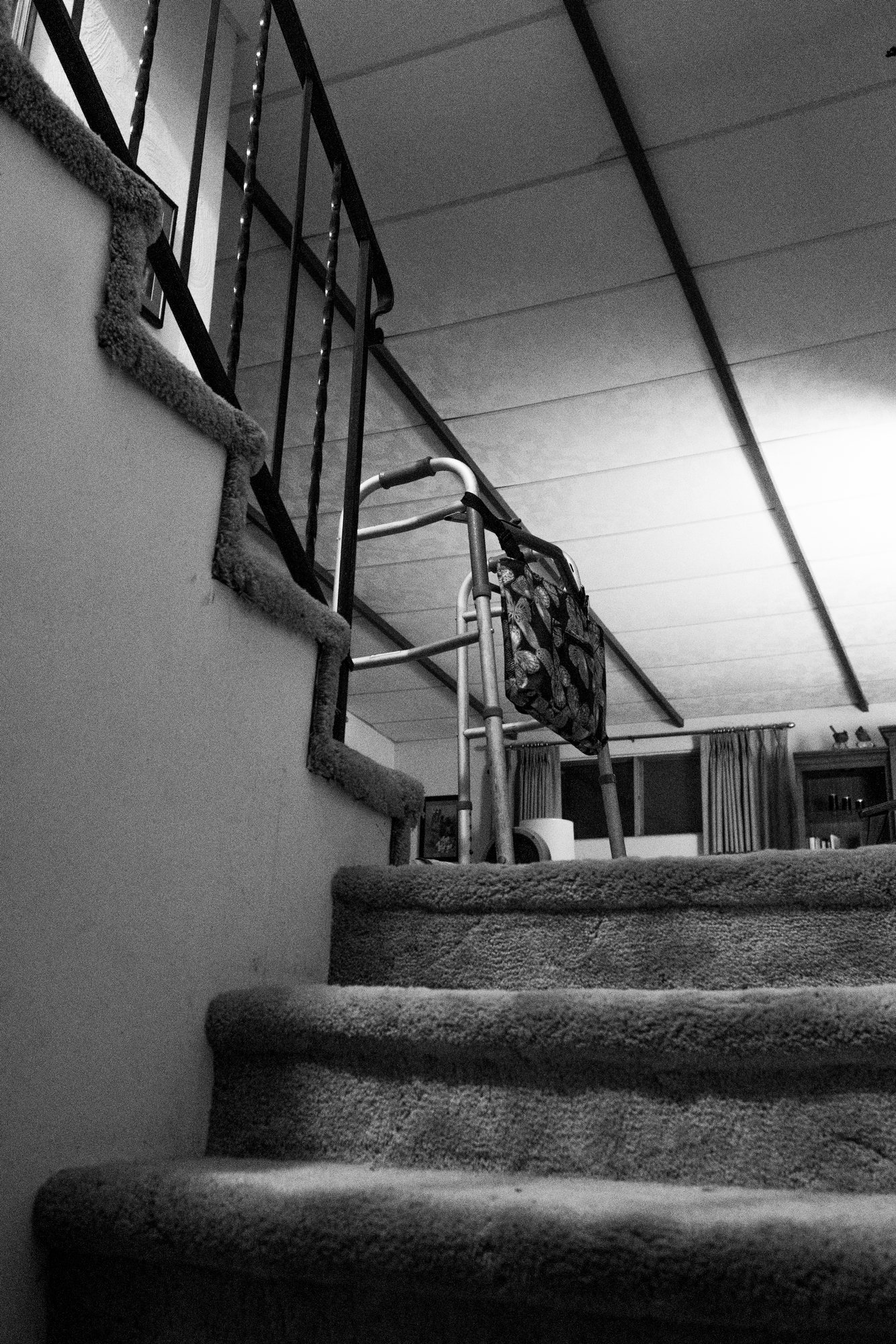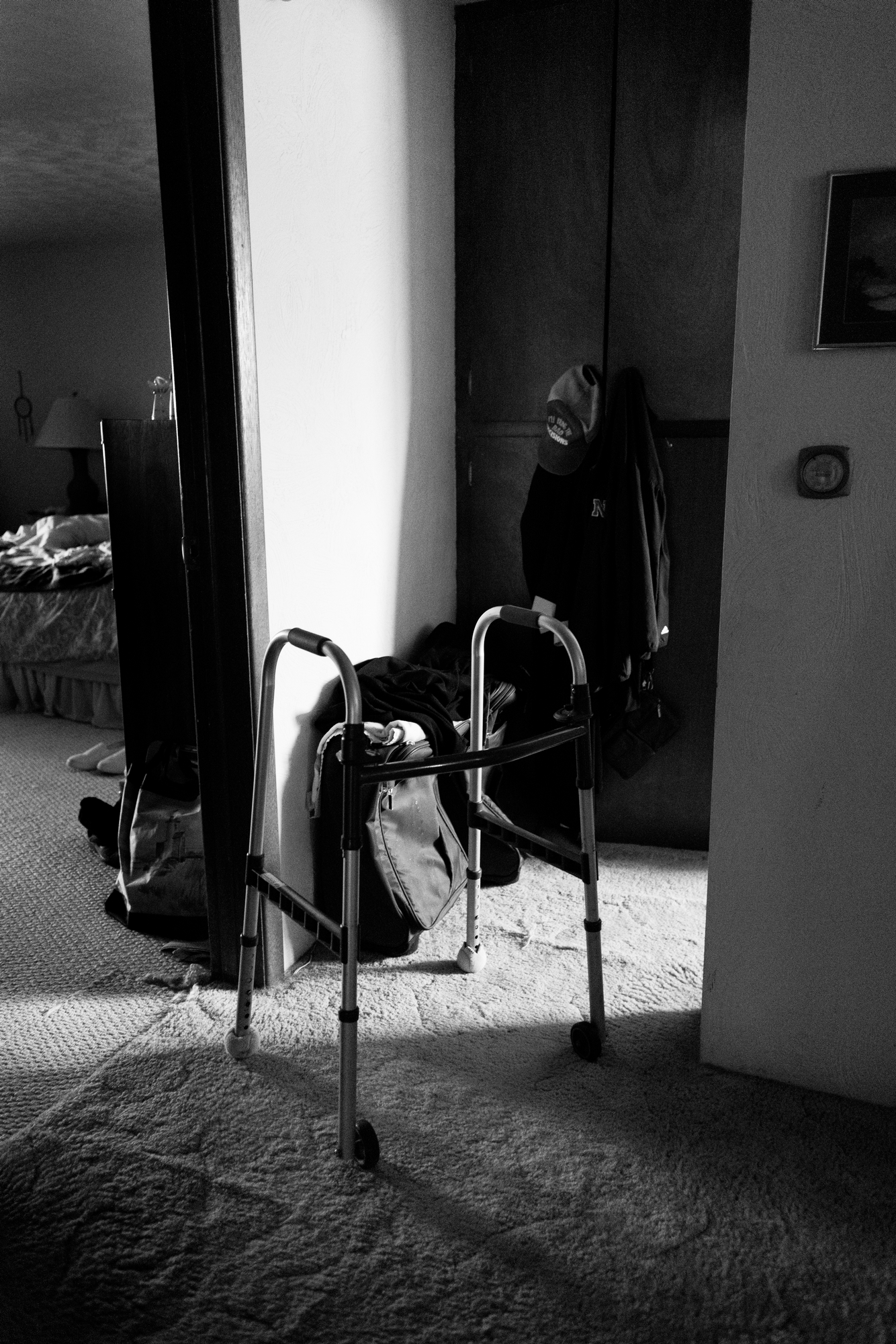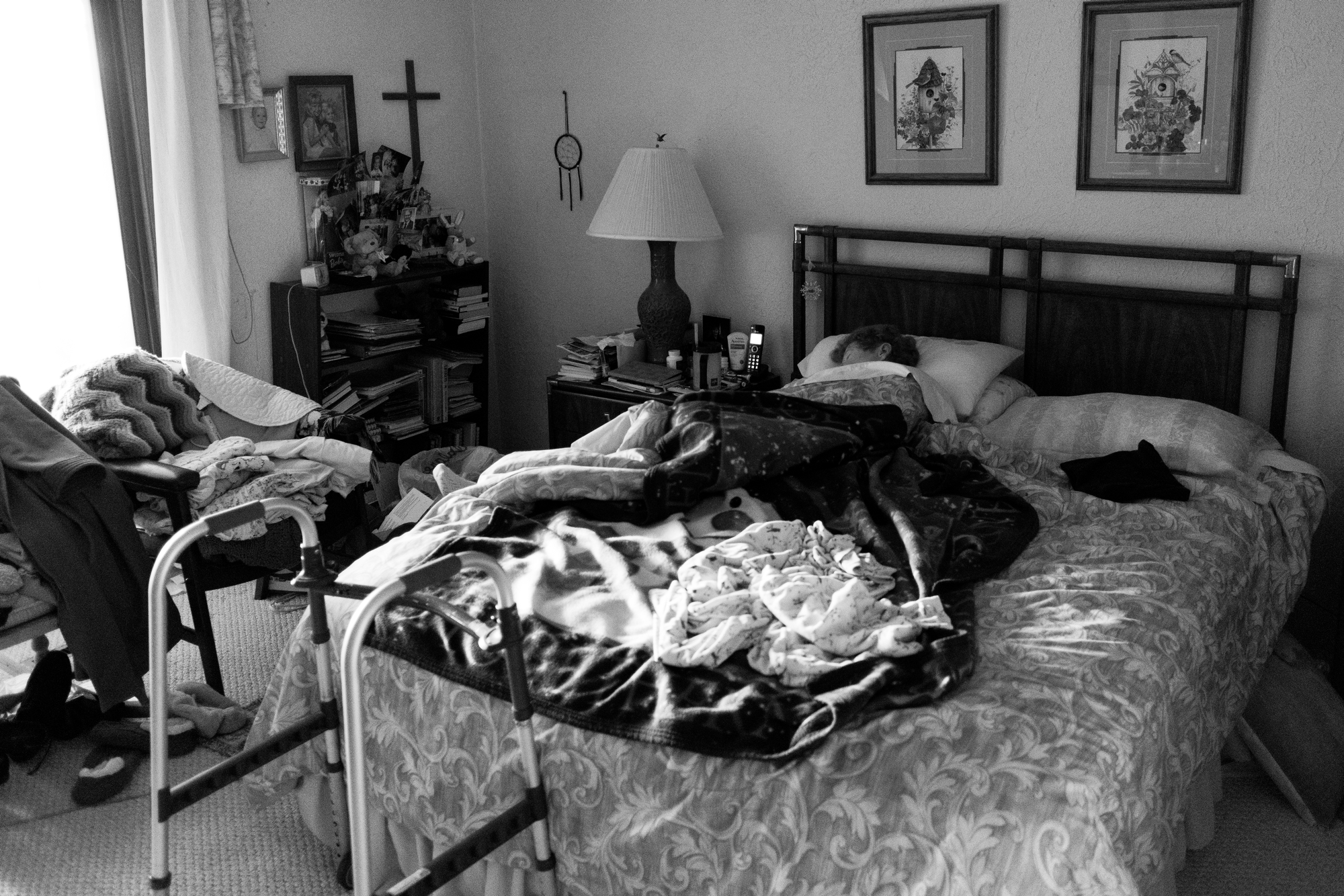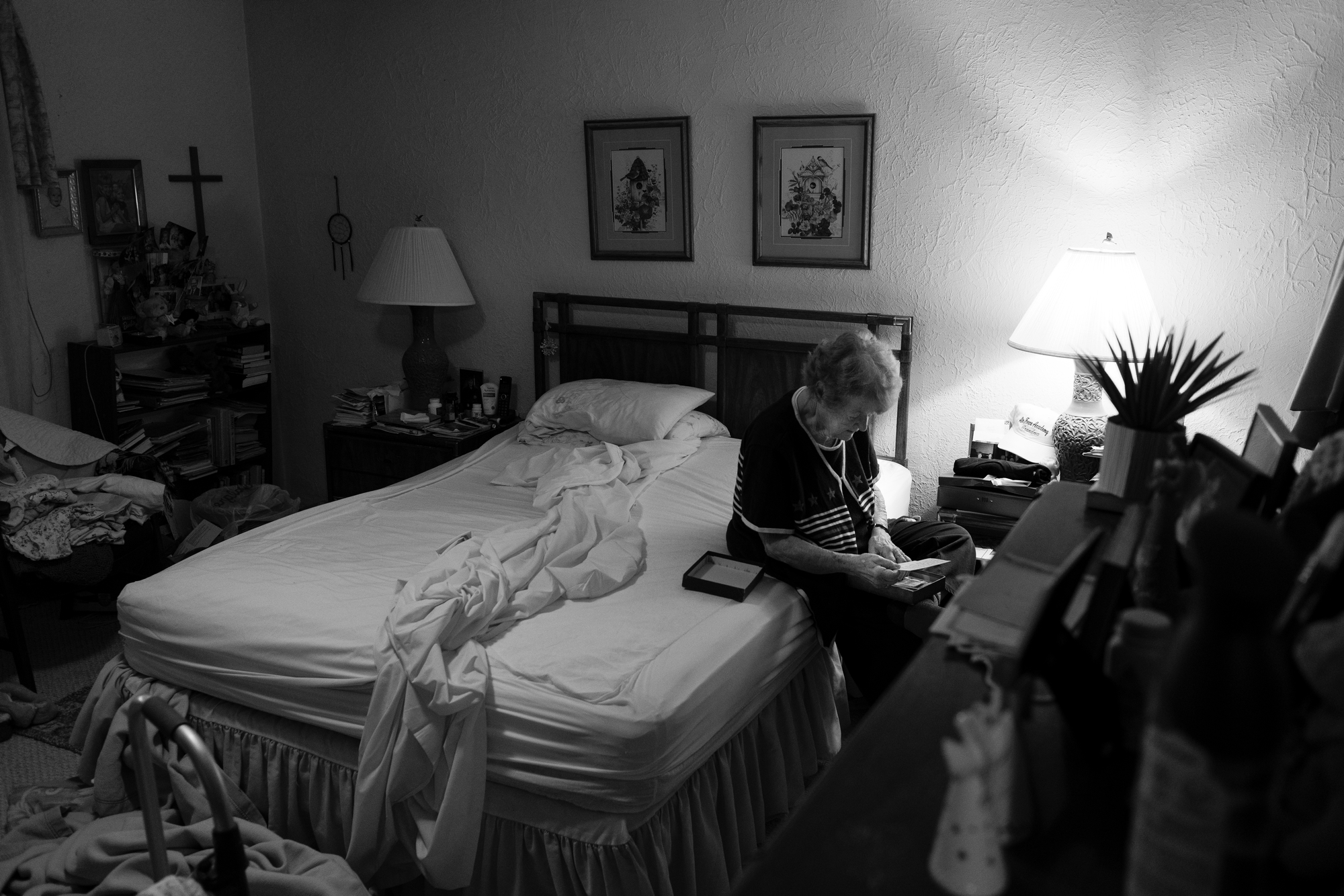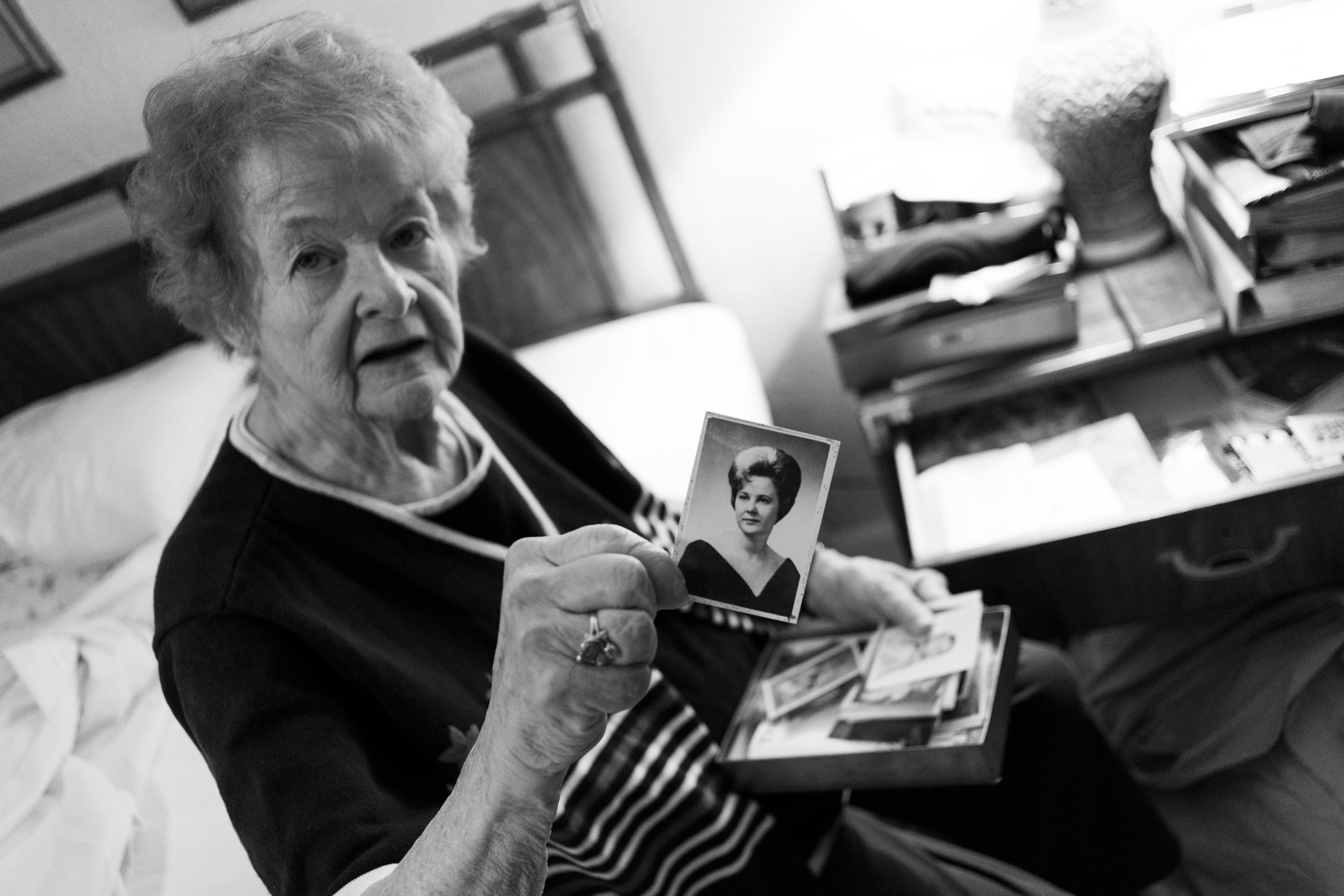This project is ongoing. I began it in 2023, so what you are viewing is the progression of stroke recovery and Alzheimer’s disease, and the efforts of the caregiver to care for her mother, with help from her husband. These efforts have played a significant role in the decline of their lifestyle and livelihood, both emotionally and financially.

The role of a caregiver often entails significant sacrifices. Many caregivers reduce their working hours, take unpaid leave, or leave the workforce entirely, leading to financial strain. Unpaid caregivers face numerous financial challenges when providing care for their loved ones, including dedicating a substantial amount of time to caregiving, which can lead to loss of income and career opportunities, reduced working hours, or quitting their jobs entirely. Additionally, caregivers frequently experience emotional and physical stress, with higher levels of anxiety, depression, and other health issues compared to non-caregivers.
In the United States, millions of families find themselves in the challenging position of caring for relatives who have become disabled or are unable to support themselves financially due to medical events or unfortunate circumstances like scams. This responsibility often compels family members to significantly alter their lives, sometimes sacrificing careers, personal time, and financial stability to provide necessary care.
Recent studies indicate that approximately 53 million U.S. adults are family caregivers, assisting older relatives, spouses, friends, or neighbors with daily tasks such as cooking and dressing. This means one in five Americans is a caregiver. The number of family caregivers is expected to grow as the population ages, with projections showing that by 2030, people aged 65 and older will outnumber children under 18.
Caregiving responsibilities are not confined to older adults; many provide care for individuals with disabilities or those recovering from medical events. Notably, about 32% of women aged 50 or older are caregivers, compared with 22% of men in the same age group.
Available Resources and Potential Pitfalls
Several resources are available to support family caregivers:
Caregiver Action Network (CAN): A non-profit organization providing education, peer support, and resources to family caregivers across the country free of charge. Caregiver Action Network
Family Caregiver Alliance (FCA): Offers a range of services, including educational materials, support groups, and information on care-giving issues.
Alzheimer’s Foundation of America (AFA): Provides support, services, and education to individuals, families, and caregivers affected by Alzheimer’s disease and related dementia.
While these organizations offer valuable support, caregivers should be aware of potential challenges:
Accessibility: Some resources may not be available in all regions, limiting access for certain caregivers.
Eligibility Requirements: Certain programs may have specific eligibility criteria, which could exclude some caregivers from receiving assistance.
Financial Costs: Although many services are free, some may require payment, adding to the financial burden caregivers already face.
Awareness: Caregivers may not be aware of available resources, leading to under-utilization of support services.
Given the growing number of family caregivers in the United States, coupled with the impact of the COVID-19 pandemic in highlighting their critical role in caring for older adults, states are realizing the importance of family caregivers to the U.S. health care system and society as a whole. However, many caregivers still face challenges in accessing adequate support.
Family care-giving is a vital yet demanding role that often requires individuals to make significant personal sacrifices. While resources are available to assist caregivers, it is crucial to address the challenges and limitations of these supports to ensure caregivers receive the help they need.

